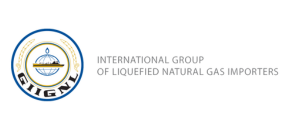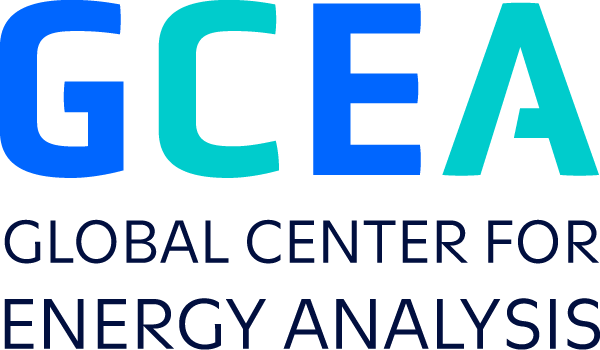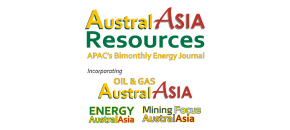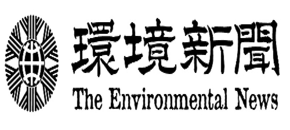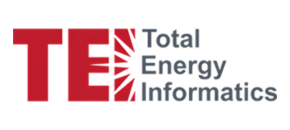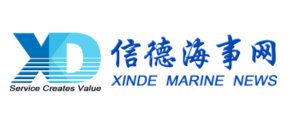2026 Strategic Summit Agenda
Driving Investment, Innovation, and Sustainable Growth Across the Energy Value Chain
2025 Participating Companies Included
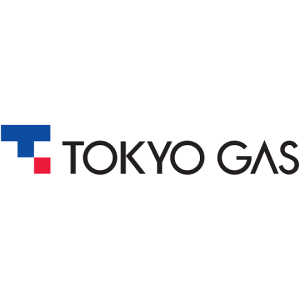
















The summit’s extensive programme unites the brightest minds across industries and governments, bringing together key sectors such as natural gas, hydrogen, ammonia, renewables, and emerging digital technologies. Through leadership panels, expert discussions, and collaborative dialogue, the event is essential for those looking to align their business strategies with the future of energy, ensuring sustainable growth, energy security, and decarbonisation.
current culture en-US
https://www.japanenergyevent.com/umbraco/delivery/api/v2/content?fetch=descendants%3A0e4eab99-23e6-450e-90cf-2b05456409a0&skip=0&take=200&expand=properties%5B%24all%5D&fields=properties%5B%24all%5D&t=20260221014121
selected en-US
{"total":39,"items":[{"contentType":"conferenceDate","name":"Day 3","createDate":"2024-09-12T08:44:19.187Z","updateDate":"2025-10-27T11:15:09.813Z","route":{"path":"/conference-collection/strategic-summit/day-3/","startItem":{"id":"7a1f5a67-78e5-4536-bb20-afc0520b23dd","path":"home"}},"id":"5dad52df-b068-49ae-a8d6-a39d011795bc","properties":{"websiteName":null,"menuTitle":null,"umbracoNaviHide":false,"disableLink":false,"isHighlighted":false,"umbracoUrlName":null,"umbracoUrlAlias":null,"umbracoRedirect":null,"umbracoInternalRedirectId":null,"externalRedirect":null,"hideDmgEventsPortfolioCMP":false,"pageBrowserTitle":null,"metaDescription":null,"metaKeywords":null,"socialMediaTitle":null,"socialMediaImage":null,"socialMediaDescription":null,"blockThisPageFromSearchEngines":false,"blockThisPageAndAllSubPagesFromSearchEngines":false,"title":null,"bannerDescription":null,"bannerImage":null,"bannerLinks":null,"pageTitle":"Day 3","sessionDate":"2026-05-28T00:00:00Z"},"cultures":{"en-us":{"path":"/conference-collection/strategic-summit/day-3/","startItem":{"id":"7a1f5a67-78e5-4536-bb20-afc0520b23dd","path":"home"}},"ja-jp":{"path":"/ja/conference-collection/\u30B9\u30C8\u30E9\u30C6\u30B8\u30FC-\u30AB\u30F3\u30D5\u30A1\u30EC\u30F3\u30B9/day-3/","startItem":{"id":"7a1f5a67-78e5-4536-bb20-afc0520b23dd","path":"home"}}}},{"contentType":"conferenceItem","name":"LEADERSHIP PANEL: Fuelling the Future: Upstream Strategy in an Era of Fragmentation","createDate":"2024-09-12T08:24:41.843Z","updateDate":"2025-11-17T09:06:37.063Z","route":{"path":"/conference-collection/strategic-summit/day-1/leadership-panel-fuelling-the-future-upstream-strategy-in-an-era-of-fragmentation/","startItem":{"id":"7a1f5a67-78e5-4536-bb20-afc0520b23dd","path":"home"}},"id":"dc2d473d-58b0-48f7-a999-562f4ed6ae09","properties":{"title":"LEADERSHIP PANEL: Fuelling the Future: Upstream Strategy in an Era of Fragmentation","description":{"markup":"\u003Cp\u003EAs demand for LNG and low-carbon fuels continues to grow in Asia, upstream investment is once again a strategic imperative \u2013 but the playing field has changed. Geopolitical fragmentation, shifting capital flows, and rising resource nationalism are redefining access, risk, and return. For Japan and other import-reliant economies, securing future supply now means more than long-term contracts \u2013 it means upstream partnerships, equity investments, and diplomatic alignment. From the US and Qatar to Southeast Asia and Alaska, new supply is coming online \u2013 but competition for offtake and financing is intensifying.\u0026nbsp;\u003C/p\u003E\n\u003Cp\u003EHow are upstream producers adjusting to shifting investor sentiment and geopolitical risk? What role can Japan play in anchoring new supply through equity stakes and offtake agreements? How are energy companies balancing short-term supply reliability with long-term transition positioning?\u003Cbr\u003E\u003Cbr\u003E\u003Cstrong\u003EAttendee Insights:\u003Cbr\u003E\u003C/strong\u003EExplore how global upstream strategies are evolving \u2013 and what Japan and Asia must do to ensure long-term, secure access to natural gas and future fuels in a divided energy landscape.\u003C/p\u003E","blocks":[]},"startTime":"2025-04-23T16:00:00Z","endTime":"2025-04-23T16:40:00Z","addSpeakerCategories":null,"addSubSessions":null,"addSponsor":null,"addTheme":null,"isABreak":false},"cultures":{"en-us":{"path":"/conference-collection/strategic-summit/day-1/leadership-panel-fuelling-the-future-upstream-strategy-in-an-era-of-fragmentation/","startItem":{"id":"7a1f5a67-78e5-4536-bb20-afc0520b23dd","path":"home"}},"ja-jp":{"path":"/ja/conference-collection/\u30B9\u30C8\u30E9\u30C6\u30B8\u30FC-\u30AB\u30F3\u30D5\u30A1\u30EC\u30F3\u30B9/1\u65E5\u76EE/leadership-panel-fuelling-the-future-upstream-strategy-in-an-era-of-fragmentation/","startItem":{"id":"7a1f5a67-78e5-4536-bb20-afc0520b23dd","path":"home"}}}},{"contentType":"conferenceItem","name":"NETWORKING LUNCH BREAK","createDate":"2024-09-12T08:17:59.557Z","updateDate":"2025-11-17T09:05:26.143Z","route":{"path":"/conference-collection/strategic-summit/day-1/networking-lunch-break/","startItem":{"id":"7a1f5a67-78e5-4536-bb20-afc0520b23dd","path":"home"}},"id":"bf14fce0-8b2c-429a-9524-9dbe53a2644a","properties":{"title":"NETWORKING LUNCH BREAK","description":null,"startTime":"2025-10-27T13:20:00Z","endTime":"2025-10-27T14:00:00Z","addSpeakerCategories":null,"addSubSessions":null,"addSponsor":null,"addTheme":null,"isABreak":true},"cultures":{"en-us":{"path":"/conference-collection/strategic-summit/day-1/networking-lunch-break/","startItem":{"id":"7a1f5a67-78e5-4536-bb20-afc0520b23dd","path":"home"}},"ja-jp":{"path":"/ja/conference-collection/\u30B9\u30C8\u30E9\u30C6\u30B8\u30FC-\u30AB\u30F3\u30D5\u30A1\u30EC\u30F3\u30B9/1\u65E5\u76EE/networking-lunch-break/","startItem":{"id":"7a1f5a67-78e5-4536-bb20-afc0520b23dd","path":"home"}}}},{"contentType":"conferenceItem","name":"NETWORKING LUNCH BREAK (1)","createDate":"2024-09-12T08:32:33.193Z","updateDate":"2025-11-17T09:17:33.96Z","route":{"path":"/conference-collection/strategic-summit/day-2/networking-lunch-break-1/","startItem":{"id":"7a1f5a67-78e5-4536-bb20-afc0520b23dd","path":"home"}},"id":"f31c02a0-a13c-4a84-99bf-a2c414484f66","properties":{"title":"NETWORKING LUNCH BREAK","description":null,"startTime":"2025-05-13T12:40:00Z","endTime":"2025-05-15T13:20:00Z","addSpeakerCategories":null,"addSubSessions":null,"addSponsor":null,"addTheme":null,"isABreak":true},"cultures":{"en-us":{"path":"/conference-collection/strategic-summit/day-2/networking-lunch-break-1/","startItem":{"id":"7a1f5a67-78e5-4536-bb20-afc0520b23dd","path":"home"}},"ja-jp":{"path":"/ja/conference-collection/\u30B9\u30C8\u30E9\u30C6\u30B8\u30FC-\u30AB\u30F3\u30D5\u30A1\u30EC\u30F3\u30B9/day-2/networking-lunch-break/","startItem":{"id":"7a1f5a67-78e5-4536-bb20-afc0520b23dd","path":"home"}}}},{"contentType":"conferenceItem","name":"LEADERSHIP PANEL: Reinventing Refineries: Integration, Efficiency and Decarbonisation","createDate":"2024-09-12T08:43:03.053Z","updateDate":"2025-11-17T09:18:33.923Z","route":{"path":"/conference-collection/strategic-summit/day-2/leadership-panel-reinventing-refineries-integration-efficiency-and-decarbonisation/","startItem":{"id":"7a1f5a67-78e5-4536-bb20-afc0520b23dd","path":"home"}},"id":"17a378d2-7f9a-4427-9629-625279a35c10","properties":{"title":"LEADERSHIP PANEL: Reinventing Refineries: Integration, Efficiency and Decarbonisation","description":{"markup":"\u003Cp\u003EJapan\u2019s refining and petrochemical sector faces a turning point. Declining domestic fuel demand, tighter emissions expectations, and rising global competition are forcing downstream players to rethink their role in the energy system. Rather than divest or downsize, Japan\u2019s refiners are exploring integration with petrochemicals, efficiency upgrades, clean hydrogen, e-fuels, and circular economy solutions. The challenge \u2013 and opportunity \u2013 is to transition from commodity fuel producers to value-added industrial platforms aligned with new energy demands.\u0026nbsp;\u003C/p\u003E\n\u003Cp\u003EHow are Japan\u2019s leading refiners adapting their portfolios to balance profitability and decarbonisation? What new revenue streams \u2013 from SAF to chemical recycling \u2013 can enhance resilience? How can refineries become anchors for regional clean energy ecosystems and innovation zones?\u003Cbr\u003E\u003Cbr\u003E\u003Cstrong\u003EAttendee Insights:\u003Cbr\u003E\u003C/strong\u003ELearn how Japan\u2019s downstream players are evolving from traditional fuel producers to integrated, future-ready industrial hubs \u2013 blending competitiveness with climate alignment.\u003C/p\u003E","blocks":[]},"startTime":"2025-05-15T16:40:00Z","endTime":"2025-05-15T17:20:00Z","addSpeakerCategories":null,"addSubSessions":null,"addSponsor":null,"addTheme":null,"isABreak":false},"cultures":{"en-us":{"path":"/conference-collection/strategic-summit/day-2/leadership-panel-reinventing-refineries-integration-efficiency-and-decarbonisation/","startItem":{"id":"7a1f5a67-78e5-4536-bb20-afc0520b23dd","path":"home"}},"ja-jp":{"path":"/ja/conference-collection/\u30B9\u30C8\u30E9\u30C6\u30B8\u30FC-\u30AB\u30F3\u30D5\u30A1\u30EC\u30F3\u30B9/day-2/leadership-panel-reinventing-refineries-integration-efficiency-and-decarbonisation/","startItem":{"id":"7a1f5a67-78e5-4536-bb20-afc0520b23dd","path":"home"}}}},{"contentType":"conferenceItem","name":"LEADERSHIP PANEL: From Vision to Value Chain: Building a Commercial CCUS Ecosystem for Japan and Southeast Asia","createDate":"2024-09-12T08:27:44.49Z","updateDate":"2025-11-18T04:33:20.413Z","route":{"path":"/conference-collection/strategic-summit/day-2/leadership-panel-from-vision-to-value-chain-building-a-commercial-ccus-ecosystem-for-japan-and-southeast-asia/","startItem":{"id":"7a1f5a67-78e5-4536-bb20-afc0520b23dd","path":"home"}},"id":"e608250e-1320-4113-ba66-b2dda6c15aac","properties":{"title":"LEADERSHIP PANEL: From Vision to Value Chain: Building a Commercial CCUS Ecosystem for Japan and Southeast Asia","description":{"markup":"\u003Cp\u003EJapan is entering a decisive phase in its carbon management strategy, launching its first full-chain CCUS projects with leadership from the Ministry of Environment, JAPEX, and JOGMEC. These efforts \u2013 focused on industrial clusters, CO\u2082 shipping, and bilateral storage agreements \u2013 are laying the foundation for a viable domestic and regional carbon value chain. At the same time, Southeast Asia is emerging as a key partner in Japan\u2019s regional strategy, with CCUS hubs in Singapore, Sarawak, and West Java offering storage access and investment opportunities.\u0026nbsp;\u003C/p\u003E\n\u003Cp\u003EHow can Japan align regulation, infrastructure, and public-private financing to unlock scale? What lessons from global pioneers can help accelerate deployment? And how can Japan and ASEAN jointly develop the standards, shipping routes, and partnerships to create a bankable regional CCUS ecosystem?\u003Cbr\u003E\u003Cbr\u003E\u003Cstrong\u003EAttendee Insights:\u003Cbr\u003E\u003C/strong\u003EGain a strategic perspective on how the Asia-Pacific can develop an interconnected CCUS market \u2013 linking projects, infrastructure, and standards to drive large-scale deployment and new commercial opportunities.\u003C/p\u003E","blocks":[]},"startTime":"2025-04-08T11:20:00Z","endTime":"2025-05-13T12:00:00Z","addSpeakerCategories":null,"addSubSessions":null,"addSponsor":null,"addTheme":null,"isABreak":false},"cultures":{"en-us":{"path":"/conference-collection/strategic-summit/day-2/leadership-panel-from-vision-to-value-chain-building-a-commercial-ccus-ecosystem-for-japan-and-southeast-asia/","startItem":{"id":"7a1f5a67-78e5-4536-bb20-afc0520b23dd","path":"home"}},"ja-jp":{"path":"/ja/conference-collection/\u30B9\u30C8\u30E9\u30C6\u30B8\u30FC-\u30AB\u30F3\u30D5\u30A1\u30EC\u30F3\u30B9/day-2/leadership-panel-from-vision-to-value-chain-building-a-commercial-ccus-ecosystem-for-japan-and-southeast-asia/","startItem":{"id":"7a1f5a67-78e5-4536-bb20-afc0520b23dd","path":"home"}}}},{"contentType":"conferenceItem","name":"LEADERSHIP PANEL: From Utility to System Orchestrator: Building the Digital Backbone of Urban Electrification","createDate":"2025-10-27T10:59:05.803Z","updateDate":"2025-11-18T04:28:55.613Z","route":{"path":"/conference-collection/strategic-summit/day-1/leadership-panel-from-utility-to-system-orchestrator-building-the-digital-backbone-of-urban-electrification/","startItem":{"id":"7a1f5a67-78e5-4536-bb20-afc0520b23dd","path":"home"}},"id":"fde12ec8-ae61-4c3b-a4b3-d86ac3ca10d3","properties":{"title":"LEADERSHIP PANEL: From Utility to System Orchestrator: Building the Digital Backbone of Urban Electrification","description":{"markup":"\u003Cp\u003EAs electrification accelerates across cities, transport, and industry, utilities are no longer passive retailers \u2013 they are becoming the orchestrators of tomorrow\u2019s energy systems. Beyond supplying power, their role now spans managing distributed energy resources, enabling smart city infrastructure, and expanding EV charging networks. This transition requires mastering dynamic pricing, balancing consumption across clusters of energy-intensive users, and strengthening interconnections between regions such as Hokkaido and Kyushu to relieve bottlenecks and share capacity. At the same time, limited network capacity and the integration of electricity supply with real-time usage are pressing challenges that demand investment in digital platforms and AI-driven intelligence.\u0026nbsp;\u003C/p\u003E\n\u003Cp\u003EHow are utilities reshaping their commercial models to capture new value beyond commodity supply, including through dynamic pricing and integrated services? What leading examples of interregional grid connections and urban electrification clusters demonstrate how supply, demand, and digital intelligence can be synchronised? Which regulatory and investment frameworks can unlock capacity expansion and enable utilities to evolve into true system orchestrators?\u003C/p\u003E\n\u003Cp\u003E\u003Cbr\u003E\u003Cbr\u003E\u003Cstrong\u003EAttendee Insights:\u003Cbr\u003E\u003C/strong\u003EDiscover how utilities are redefining their role in a digital, decentralised energy landscape \u2013 building integrated, intelligent systems that connect users, clusters, and regions while unlocking new value streams across the electrification chain.\u003C/p\u003E","blocks":[]},"startTime":"2025-10-27T17:20:00Z","endTime":"2025-10-27T18:00:00Z","addSpeakerCategories":null,"addSubSessions":null,"addSponsor":null,"addTheme":null,"isABreak":false},"cultures":{"en-us":{"path":"/conference-collection/strategic-summit/day-1/leadership-panel-from-utility-to-system-orchestrator-building-the-digital-backbone-of-urban-electrification/","startItem":{"id":"7a1f5a67-78e5-4536-bb20-afc0520b23dd","path":"home"}},"ja-jp":{"path":"/ja/conference-collection/\u30B9\u30C8\u30E9\u30C6\u30B8\u30FC-\u30AB\u30F3\u30D5\u30A1\u30EC\u30F3\u30B9/1\u65E5\u76EE/leadership-panel-from-utility-to-system-orchestrator-building-the-digital-backbone-of-urban-electrification/","startItem":{"id":"7a1f5a67-78e5-4536-bb20-afc0520b23dd","path":"home"}}}},{"contentType":"conferenceItem","name":"LEADERSHIP PANEL: Decarbonising LNG at Scale: The Economics, Timelines, and Market Impact","createDate":"2025-04-08T09:04:52.883Z","updateDate":"2025-11-18T04:32:46.563Z","route":{"path":"/conference-collection/strategic-summit/day-2/leadership-panel-decarbonising-lng-at-scale-the-economics-timelines-and-market-impact/","startItem":{"id":"7a1f5a67-78e5-4536-bb20-afc0520b23dd","path":"home"}},"id":"3b6223d2-5044-40e1-9127-19b2b8d569df","properties":{"title":"LEADERSHIP PANEL: Decarbonising LNG at Scale: The Economics, Timelines, and Market Impact","description":{"markup":"\u003Cp\u003ELNG remains a cornerstone of Asia\u2019s energy security and competitiveness \u2013 but its long-term credibility depends on accelerating emissions reductions across its value chain. From upstream methane abatement and CCUS at liquefaction plants to cleaner shipping and emissions-transparent trading, the industry is rethinking its operations to meet tightening climate targets. Technologies, policies, and market mechanisms are emerging to drive down lifecycle CO\u2082 and methane emissions, while also positioning LNG infrastructure for future roles in hydrogen, ammonia, and CO\u2082 transport.\u0026nbsp;\u003C/p\u003E\n\u003Cp\u003EHow far and fast can these reductions go in the next decade? Which investments deliver the greatest emissions impact per dollar spent? How can industry and governments collaborate to set, measure, and enforce credible standards that withstand global scrutiny?\u003Cbr\u003E\u003Cbr\u003E\u003Cstrong\u003EAttendee Insights:\u003Cbr\u003E\u003C/strong\u003EGain clarity on the pace, scale, and economics of cutting LNG\u2019s carbon footprint \u2013 and the strategies shaping its place in tomorrow\u2019s clean energy mix.\u003C/p\u003E","blocks":[]},"startTime":"2025-04-08T10:40:00Z","endTime":"2025-04-08T11:20:00Z","addSpeakerCategories":null,"addSubSessions":null,"addSponsor":null,"addTheme":null,"isABreak":false},"cultures":{"en-us":{"path":"/conference-collection/strategic-summit/day-2/leadership-panel-decarbonising-lng-at-scale-the-economics-timelines-and-market-impact/","startItem":{"id":"7a1f5a67-78e5-4536-bb20-afc0520b23dd","path":"home"}},"ja-jp":{"path":"/ja/conference-collection/\u30B9\u30C8\u30E9\u30C6\u30B8\u30FC-\u30AB\u30F3\u30D5\u30A1\u30EC\u30F3\u30B9/day-2/leadership-panel-decarbonising-lng-at-scale-the-economics-timelines-and-market-impact/","startItem":{"id":"7a1f5a67-78e5-4536-bb20-afc0520b23dd","path":"home"}}}},{"contentType":"conferenceItem","name":"LEADERSHIP PANEL: Intelligent Energy: Harnessing AI for Resilient, Efficient Systems","createDate":"2025-10-27T10:58:29.213Z","updateDate":"2025-11-18T04:31:36.11Z","route":{"path":"/conference-collection/strategic-summit/day-1/leadership-panel-intelligent-energy-harnessing-ai-for-resilient-efficient-systems/","startItem":{"id":"7a1f5a67-78e5-4536-bb20-afc0520b23dd","path":"home"}},"id":"13c46dfa-1859-4b1d-b7e5-3a13eb7f087c","properties":{"title":"LEADERSHIP PANEL: Intelligent Energy: Harnessing AI for Resilient, Efficient Systems","description":{"markup":"\u003Cp\u003EArtificial intelligence is moving rapidly from concept to deployment across the energy sector \u2013 from optimising LNG trading and power plant operations, to enabling predictive maintenance, grid flexibility, demand response, and carbon tracking. In Japan, where digitalisation is central to the Seventh Strategic Energy Plan, AI offers a pathway to improve demand forecasting, integrate renewables, support EV adoption, enhance demand-side management, and reduce system costs. Globally, AI is already being applied in commodity trading, asset optimisation, and customer platforms, creating opportunities for both incumbents and innovators. But challenges remain: data sharing, cyber resilience, workforce readiness, and regulatory alignment will shape how far and how fast the sector can go.\u0026nbsp;\u003C/p\u003E\n\u003Cp\u003EHow can AI unlock new efficiency gains across power, LNG, and renewables value chains, including demand-side flexibility? What lessons can Japan take from global pioneers in AI-driven grid management, trading, and emissions reduction? What safeguards and governance are needed to ensure AI adoption enhances resilience without creating new vulnerabilities?\u003Cbr\u003E\u003Cbr\u003E\u003Cstrong\u003EAttendee Insights:\u003Cbr\u003E\u003C/strong\u003EHear how global energy leaders are deploying AI across trading, grids, demand response, and customer platforms \u2013 and what it means for Japan\u2019s drive toward a smarter, more resilient, and low-carbon energy system.\u003C/p\u003E","blocks":[]},"startTime":"2025-10-27T16:40:00Z","endTime":"2025-10-27T17:20:00Z","addSpeakerCategories":null,"addSubSessions":null,"addSponsor":null,"addTheme":null,"isABreak":false},"cultures":{"en-us":{"path":"/conference-collection/strategic-summit/day-1/leadership-panel-intelligent-energy-harnessing-ai-for-resilient-efficient-systems/","startItem":{"id":"7a1f5a67-78e5-4536-bb20-afc0520b23dd","path":"home"}},"ja-jp":{"path":"/ja/conference-collection/\u30B9\u30C8\u30E9\u30C6\u30B8\u30FC-\u30AB\u30F3\u30D5\u30A1\u30EC\u30F3\u30B9/1\u65E5\u76EE/leadership-panel-intelligent-energy-harnessing-ai-for-resilient-efficient-systems/","startItem":{"id":"7a1f5a67-78e5-4536-bb20-afc0520b23dd","path":"home"}}}},{"contentType":"conferenceItem","name":"LEADERSHIP PANEL: Ammonia Ambitions: Building Japan\u2019s Next Green Fuel Supply Chain","createDate":"2024-09-12T08:36:08.713Z","updateDate":"2025-11-18T04:34:11.58Z","route":{"path":"/conference-collection/strategic-summit/day-2/leadership-panel-ammonia-ambitions-building-japan-s-next-green-fuel-supply-chain/","startItem":{"id":"7a1f5a67-78e5-4536-bb20-afc0520b23dd","path":"home"}},"id":"71fa640a-3fc2-4714-b8c3-2bc332b24ba5","properties":{"title":"LEADERSHIP PANEL: Ammonia Ambitions: Building Japan\u2019s Next Green Fuel Supply Chain","description":{"markup":"\u003Cp\u003EClean ammonia is moving from concept to commercial reality, with Japan positioned as a central demand hub in the emerging global market. Falling production costs, the rise of export hubs in the U.S., Middle East, Australia, and China, and the scaling of maritime and industrial use are reshaping trade flows. To secure supply at scale, Japan must connect to these global markets through long-term offtake, investment in storage and bunkering, and coordinated infrastructure development. Certification, pricing models, and predictable demand signals will be critical to anchor confidence for producers and buyers alike.\u0026nbsp;\u003C/p\u003E\n\u003Cp\u003EWhat role will global supply partnerships play in ensuring Japan\u2019s energy security and industrial decarbonisation? How will cost trends and certification frameworks influence procurement and market formation? What infrastructure priorities \u2013 from import terminals to bunkering and storage \u2013 are needed to build a resilient, internationally connected ammonia supply chain?\u003Cbr\u003E\u003Cbr\u003E\u003Cstrong\u003EAttendee Insights:\u003Cbr\u003E\u003C/strong\u003EGain perspective on how Japan is linking into the global ammonia market \u2013 securing supply, scaling storage and bunkering, and forging partnerships that will underpin future trade and industrial decarbonisation.\u003C/p\u003E","blocks":[]},"startTime":"2025-05-15T13:20:00Z","endTime":"2025-05-15T14:00:00Z","addSpeakerCategories":null,"addSubSessions":null,"addSponsor":null,"addTheme":null,"isABreak":false},"cultures":{"en-us":{"path":"/conference-collection/strategic-summit/day-2/leadership-panel-ammonia-ambitions-building-japan-s-next-green-fuel-supply-chain/","startItem":{"id":"7a1f5a67-78e5-4536-bb20-afc0520b23dd","path":"home"}},"ja-jp":{"path":"/ja/conference-collection/\u30B9\u30C8\u30E9\u30C6\u30B8\u30FC-\u30AB\u30F3\u30D5\u30A1\u30EC\u30F3\u30B9/day-2/leadership-panel-ammonia-ambitions-building-japan-s-next-great-fuel-supply-chain/","startItem":{"id":"7a1f5a67-78e5-4536-bb20-afc0520b23dd","path":"home"}}}},{"contentType":"conferenceItem","name":"LEADERSHIP PANEL: Clean Fuels in Shipping: From LNG Carriers to Next-Generation Fleets","createDate":"2024-09-12T08:33:54.863Z","updateDate":"2025-11-18T04:34:29.97Z","route":{"path":"/conference-collection/strategic-summit/day-2/leadership-panel-clean-fuels-in-shipping-from-lng-carriers-to-next-generation-fleets/","startItem":{"id":"7a1f5a67-78e5-4536-bb20-afc0520b23dd","path":"home"}},"id":"54830354-3af2-4e77-8028-640c909d2e65","properties":{"title":"LEADERSHIP PANEL: Clean Fuels in Shipping: From LNG Carriers to Next-Generation Fleets","description":{"markup":"\u003Cp\u003EGlobal shipping is under growing pressure from the IMO and markets to decarbonise, and Japan is positioning itself as a leader in the transition. With LNG carriers forming the backbone of today\u2019s fleet, the industry now faces hard choices: whether to double down on LNG as a transition fuel or move early into ammonia, e-methanol, and other clean alternatives. Japan is investing in ammonia-ready engines, bunkering hubs, and pilot corridors with Asia-Pacific partners \u2013 but questions remain around deployment timelines, costs, and commercial risk.\u0026nbsp;\u003C/p\u003E\n\u003Cp\u003EHow are shipowners balancing LNG\u2019s role as a bridge fuel with investment in new clean-fuel vessels? Which alliances, ports, and corridors will drive early adoption of ammonia and e-methanol? What role can Japanese buyers, ports, and technology providers play in accelerating commercial rollout?\u003Cbr\u003E\u003Cbr\u003E\u003Cstrong\u003EAttendee Insights:\u003Cbr\u003E\u003C/strong\u003EUnderstand how Japan\u2019s clean fuel strategy is influencing LNG shipping decisions today \u2013 and shaping the design of the next generation of global fleets.\u003C/p\u003E","blocks":[]},"startTime":"2025-05-15T14:00:00Z","endTime":"2025-05-15T14:40:00Z","addSpeakerCategories":null,"addSubSessions":null,"addSponsor":null,"addTheme":null,"isABreak":false},"cultures":{"en-us":{"path":"/conference-collection/strategic-summit/day-2/leadership-panel-clean-fuels-in-shipping-from-lng-carriers-to-next-generation-fleets/","startItem":{"id":"7a1f5a67-78e5-4536-bb20-afc0520b23dd","path":"home"}},"ja-jp":{"path":"/ja/conference-collection/\u30B9\u30C8\u30E9\u30C6\u30B8\u30FC-\u30AB\u30F3\u30D5\u30A1\u30EC\u30F3\u30B9/day-2/leadership-panel-clean-fuels-in-shipping-from-lng-carriers-to-next-generation-fleets/","startItem":{"id":"7a1f5a67-78e5-4536-bb20-afc0520b23dd","path":"home"}}}},{"contentType":"conferenceItem","name":"LEADERSHIP PANEL: Demand-Driven Transition: How End-Users Are Shaping Energy Markets","createDate":"2024-09-12T08:39:01.347Z","updateDate":"2025-11-18T04:39:32.623Z","route":{"path":"/conference-collection/strategic-summit/day-2/leadership-panel-demand-driven-transition-how-end-users-are-shaping-energy-markets/","startItem":{"id":"7a1f5a67-78e5-4536-bb20-afc0520b23dd","path":"home"}},"id":"e8dc31df-6e70-42d2-aec6-7a54c3fb569f","properties":{"title":"LEADERSHIP PANEL: Demand-Driven Transition: How End-Users Are Shaping Energy Markets","description":{"markup":"\u003Cp\u003EEnergy-intensive industries and digital platforms are becoming the new drivers of transition. Steel, cement, and chemical companies are under pressure from CBAM and ESG investors, while data centres and transport are creating unprecedented new loads. Japan\u2019s end-users are not just consumers but co-investors \u2013 signing PPAs, piloting hydrogen and ammonia, and building closed-loop systems for decarbonisation. Their choices will determine how fast new technologies scale, how financing models evolve, and how competitiveness is defined.\u0026nbsp;\u003C/p\u003E\n\u003Cp\u003EHow are Japan\u2019s energy-intensive industries preparing for carbon costs and trade-linked climate policies? What role are digital and tech companies playing in stimulating new clean energy projects? How can policy, finance, and partnerships accelerate demand-driven decarbonisation?\u003Cbr\u003E\u003Cbr\u003E\u003Cstrong\u003EAttendee Insights:\u003Cbr\u003E\u003C/strong\u003EDiscover how industrial and digital end-users are becoming pivotal to Japan\u2019s GX \u2013 driving demand for clean fuels, renewables, and financing models that will anchor system-wide transition.\u003C/p\u003E","blocks":[]},"startTime":"2025-05-15T15:20:00Z","endTime":"2025-05-15T16:00:00Z","addSpeakerCategories":null,"addSubSessions":null,"addSponsor":null,"addTheme":null,"isABreak":false},"cultures":{"en-us":{"path":"/conference-collection/strategic-summit/day-2/leadership-panel-demand-driven-transition-how-end-users-are-shaping-energy-markets/","startItem":{"id":"7a1f5a67-78e5-4536-bb20-afc0520b23dd","path":"home"}},"ja-jp":{"path":"/ja/conference-collection/\u30B9\u30C8\u30E9\u30C6\u30B8\u30FC-\u30AB\u30F3\u30D5\u30A1\u30EC\u30F3\u30B9/day-2/leadership-panel-demand-driven-transition-how-end-users-are-shaping-energy-markets/","startItem":{"id":"7a1f5a67-78e5-4536-bb20-afc0520b23dd","path":"home"}}}},{"contentType":"conferenceItem","name":"LEADERSHIP PANEL: Japan\u2019s LNG Trading Future: New Supply, New Tools, New Opportunities","createDate":"2024-09-12T08:37:22.933Z","updateDate":"2025-11-18T04:39:06.69Z","route":{"path":"/conference-collection/strategic-summit/day-2/leadership-panel-japan-s-lng-trading-future-new-supply-new-tools-new-opportunities/","startItem":{"id":"7a1f5a67-78e5-4536-bb20-afc0520b23dd","path":"home"}},"id":"b08de81a-74d7-4a07-9a17-63c8021c0819","properties":{"title":"LEADERSHIP PANEL: Japan\u2019s LNG Trading Future: New Supply, New Tools, New Opportunities","description":{"markup":"\u003Cp\u003EJapan remains the world\u2019s largest LNG importer, but its trading dynamics are being reshaped by the surge of new supply from the US, Canada, and Qatar. These projects, combined with Japan\u2019s position as a price-sensitive anchor market, are fostering deeper liquidity and new derivative products. At the same time, advancements in digital platforms, market intelligence, and emissions-tracking tools are creating more transparent, flexible trading environments. As Japanese buyers rebalance their portfolios, the opportunity lies not just in securing volumes, but in shaping the next phase of LNG price discovery and risk management in Asia.\u0026nbsp;\u003C/p\u003E\n\u003Cp\u003EHow will new supply from North America and the Middle East reshape Japan\u2019s trading strategies and contract structures? What role can Japanese players take in driving the development of new benchmarks, derivatives, and carbon-linked LNG products? How can technology, data, and market intelligence tools enhance liquidity, transparency, and emissions tracking in LNG trading?\u003Cbr\u003E\u003Cbr\u003E\u003Cstrong\u003EAttendee Insights:\u003Cbr\u003E\u003C/strong\u003EUnderstand how Japan\u2019s LNG buyers and traders are leveraging new supply sources and digital tools to expand derivatives, deepen market liquidity, and position Tokyo as a key hub in global LNG trading.\u003C/p\u003E","blocks":[]},"startTime":"2025-05-15T14:40:00Z","endTime":"2025-05-15T15:20:00Z","addSpeakerCategories":null,"addSubSessions":null,"addSponsor":null,"addTheme":null,"isABreak":false},"cultures":{"en-us":{"path":"/conference-collection/strategic-summit/day-2/leadership-panel-japan-s-lng-trading-future-new-supply-new-tools-new-opportunities/","startItem":{"id":"7a1f5a67-78e5-4536-bb20-afc0520b23dd","path":"home"}},"ja-jp":{"path":"/ja/conference-collection/\u30B9\u30C8\u30E9\u30C6\u30B8\u30FC-\u30AB\u30F3\u30D5\u30A1\u30EC\u30F3\u30B9/day-2/leadership-panel-japan-s-lng-trading-future-new-supply-new-tools-new-opportunities/","startItem":{"id":"7a1f5a67-78e5-4536-bb20-afc0520b23dd","path":"home"}}}},{"contentType":"conferenceItem","name":"LEADERSHIP PANEL: Nuclear Innovation: The Role of SMRs, Public Trust and Energy Security","createDate":"2024-09-12T08:41:59.11Z","updateDate":"2025-11-18T04:39:57.287Z","route":{"path":"/conference-collection/strategic-summit/day-2/leadership-panel-nuclear-innovation-the-role-of-smrs-public-trust-and-energy-security/","startItem":{"id":"7a1f5a67-78e5-4536-bb20-afc0520b23dd","path":"home"}},"id":"50a488bb-49e5-4b5f-b04c-001ffac110b8","properties":{"title":"LEADERSHIP PANEL: Nuclear Innovation: The Role of SMRs, Public Trust and Energy Security","description":{"markup":"\u003Cdiv class=\u0022OutlineElement Ltr SCXW16718420 BCX8\u0022\u003E\n\u003Cp\u003EJapan\u2019s nuclear sector is entering a new phase, with plans for restarts and advanced reactor development. Small modular reactors (SMRs), next-gen safety features, and integration with clean hydrogen offer renewed relevance. But public trust, cost certainty and international cooperation remain barriers to progress. Japan\u2019s strategy must reconcile innovation with transparency and resilience.\u0026nbsp;\u003C/p\u003E\n\u003Cp\u003EHow are SMRs and next-gen designs reshaping Japan\u2019s nuclear roadmap? What policy and engagement strategies are rebuilding public and investor trust? How can Japan position nuclear as part of a resilient, diversified clean energy mix?\u003Cbr\u003E\u003Cbr\u003E\u003Cstrong\u003EAttendee Insights:\u003Cbr\u003E\u003C/strong\u003EGain insights into how innovation, safety and public support are redefining nuclear\u2019s contribution to Japan\u2019s energy and climate goals.\u003C/p\u003E\n\u003C/div\u003E","blocks":[]},"startTime":"2025-05-15T16:00:00Z","endTime":"2025-05-15T16:40:00Z","addSpeakerCategories":null,"addSubSessions":null,"addSponsor":null,"addTheme":null,"isABreak":false},"cultures":{"en-us":{"path":"/conference-collection/strategic-summit/day-2/leadership-panel-nuclear-innovation-the-role-of-smrs-public-trust-and-energy-security/","startItem":{"id":"7a1f5a67-78e5-4536-bb20-afc0520b23dd","path":"home"}},"ja-jp":{"path":"/ja/conference-collection/\u30B9\u30C8\u30E9\u30C6\u30B8\u30FC-\u30AB\u30F3\u30D5\u30A1\u30EC\u30F3\u30B9/day-2/leadership-panel-nuclear-innovation-the-role-of-smrs-public-trust-and-energy-security/","startItem":{"id":"7a1f5a67-78e5-4536-bb20-afc0520b23dd","path":"home"}}}},{"contentType":"conferenceItem","name":"LEADERSHIP PANEL: Women in Energy: Power, Purpose and Progress for Asia\u2019s Energy Future","createDate":"2025-02-25T09:30:13.383Z","updateDate":"2025-11-18T04:40:28.067Z","route":{"path":"/conference-collection/strategic-summit/day-2/leadership-panel-women-in-energy-power-purpose-and-progress-for-asia-s-energy-future/","startItem":{"id":"7a1f5a67-78e5-4536-bb20-afc0520b23dd","path":"home"}},"id":"d7f3e91c-835a-401a-835d-1159941215a8","properties":{"title":"LEADERSHIP PANEL: Women in Energy: Power, Purpose and Progress for Asia\u2019s Energy Future","description":{"markup":"\u003Cp\u003EAsia\u2019s energy sector is entering a period of generational change \u2013 and women are increasingly at the forefront of diplomacy, investment, innovation and regulation. This high-profile dialogue brings together accomplished women from government, industry and finance to discuss not just representation, but responsibility.\u0026nbsp;\u003C/p\u003E\n\u003Cp\u003EHow are they navigating complexity, shaping outcomes, and defining what leadership looks like in a time of transition? What\u2019s changing about how women lead in energy \u2013 and what impact is it having? Where is gender equity intersected with national and corporate energy strategy? What advice would today\u2019s leaders offer to those just starting their energy journey?\u003Cbr\u003E\u003Cbr\u003E\u003Cstrong\u003EAttendee Insights:\u003Cbr\u003E\u003C/strong\u003EGain inspiration and insight from the women influencing Asia\u2019s energy path \u2013 and what their stories reveal about leadership, resilience and opportunity in 2026 and beyond.\u003C/p\u003E","blocks":[]},"startTime":"2025-05-15T17:20:00Z","endTime":"2025-05-15T18:00:00Z","addSpeakerCategories":null,"addSubSessions":null,"addSponsor":null,"addTheme":null,"isABreak":false},"cultures":{"en-us":{"path":"/conference-collection/strategic-summit/day-2/leadership-panel-women-in-energy-power-purpose-and-progress-for-asia-s-energy-future/","startItem":{"id":"7a1f5a67-78e5-4536-bb20-afc0520b23dd","path":"home"}},"ja-jp":{"path":"/ja/conference-collection/\u30B9\u30C8\u30E9\u30C6\u30B8\u30FC-\u30AB\u30F3\u30D5\u30A1\u30EC\u30F3\u30B9/day-2/leadership-panel-women-in-energy-power-purpose-and-progress-for-asia-s-energy-future/","startItem":{"id":"7a1f5a67-78e5-4536-bb20-afc0520b23dd","path":"home"}}}},{"contentType":"conferenceItem","name":"LEADERSHIP PANEL: Japan\u2019s Carbon Market Evolution: Delivering Compliance by 2026","createDate":"2024-09-12T08:31:13.22Z","updateDate":"2025-11-18T04:33:42.327Z","route":{"path":"/conference-collection/strategic-summit/day-2/leadership-panel-japan-s-carbon-market-evolution-delivering-compliance-by-2026/","startItem":{"id":"7a1f5a67-78e5-4536-bb20-afc0520b23dd","path":"home"}},"id":"8db43d0a-648b-4ab4-912e-2983c216378e","properties":{"title":"LEADERSHIP PANEL: Japan\u2019s Carbon Market Evolution: Delivering Compliance by 2026","description":{"markup":"\u003Cp\u003EJapan\u2019s Green Transformation Emissions Trading System (GX-ETS) is entering a decisive phase, shifting from a voluntary framework to mandatory participation in 2026. This transition will bring hundreds of major emitters into compliance, requiring robust MRV systems, regulatory oversight, and new market infrastructure to support effective emissions trading. For companies, the shift means embedding carbon costs into strategy, investing in emissions reduction pathways, and engaging actively with policymakers to shape workable rules. The question now is whether GX-ETS can deliver both compliance and competitiveness, while aligning with Japan\u2019s wider decarbonisation and industrial policies.\u0026nbsp;\u003C/p\u003E\n\u003Cp\u003EHow is GX-ETS changing corporate behaviour and investment decisions as it moves to compliance? What challenges and opportunities arise for businesses, investors, and regulators in building a credible, liquid carbon market? How will the compliance system integrate with Japan\u2019s broader climate and industrial strategies on the path to net zero?\u003Cbr\u003E\u003Cbr\u003E\u003Cstrong\u003EAttendee Insights:\u003Cbr\u003E\u003C/strong\u003EGain clarity on Japan\u2019s transition to a compliance-driven carbon market \u2013 and what businesses must do now to prepare for 2026 and beyond.\u003C/p\u003E","blocks":[]},"startTime":"2025-05-13T12:00:00Z","endTime":"2025-05-13T12:40:00Z","addSpeakerCategories":null,"addSubSessions":null,"addSponsor":null,"addTheme":null,"isABreak":false},"cultures":{"en-us":{"path":"/conference-collection/strategic-summit/day-2/leadership-panel-japan-s-carbon-market-evolution-delivering-compliance-by-2026/","startItem":{"id":"7a1f5a67-78e5-4536-bb20-afc0520b23dd","path":"home"}},"ja-jp":{"path":"/ja/conference-collection/\u30B9\u30C8\u30E9\u30C6\u30B8\u30FC-\u30AB\u30F3\u30D5\u30A1\u30EC\u30F3\u30B9/day-2/leadership-panel-japan-s-carbon-market-evolution-delivering-compliance-by-2026/","startItem":{"id":"7a1f5a67-78e5-4536-bb20-afc0520b23dd","path":"home"}}}},{"contentType":"conferenceItem","name":"LEADERSHIP PANEL: Powering a Connected Asia: Market Reform, Grid Integration and Japan\u2019s Regional Role","createDate":"2025-10-27T11:27:51.737Z","updateDate":"2025-11-18T05:03:58.93Z","route":{"path":"/conference-collection/strategic-summit/day-3/leadership-panel-powering-a-connected-asia-market-reform-grid-integration-and-japan-s-regional-role/","startItem":{"id":"7a1f5a67-78e5-4536-bb20-afc0520b23dd","path":"home"}},"id":"bdd4807d-dae7-41b4-bf7b-c4fd8b77659f","properties":{"title":"LEADERSHIP PANEL: Powering a Connected Asia: Market Reform, Grid Integration and Japan\u2019s Regional Role","description":{"markup":"\u003Cp\u003EAs electricity demand rises and systems decarbonise, market reform is no longer just a domestic agenda \u2013 it\u2019s a regional imperative. Japan\u2019s experience with liberalisation, flexibility markets, and unbundling offers a critical reference point for neighbouring economies seeking to modernise their power sectors. At the same time, greater regional grid integration \u2013 from HVDC links to shared flexibility services \u2013 offers huge potential to enhance energy security, reduce costs, and support variable renewables. But policy alignment, regulatory interoperability, and investment incentives remain uneven.\u0026nbsp;\u003C/p\u003E\n\u003Cp\u003EHow can Japan help shape a connected, competitive power market across Asia? What lessons can be drawn from Japan\u2019s deregulation and balancing reforms? And what new coordination models could enable cross-border trade and system resilience across the region?\u003Cbr\u003E\u003Cbr\u003E\u003Cstrong\u003EAttendee Insights:\u003Cbr\u003E\u003C/strong\u003EUnderstand how Japan\u2019s market evolution and regional leadership can accelerate power sector integration, flexibility, and investment across Asia.\u003C/p\u003E","blocks":[]},"startTime":"2025-10-27T14:00:00Z","endTime":"2025-10-27T14:40:00Z","addSpeakerCategories":null,"addSubSessions":null,"addSponsor":null,"addTheme":null,"isABreak":false},"cultures":{"en-us":{"path":"/conference-collection/strategic-summit/day-3/leadership-panel-powering-a-connected-asia-market-reform-grid-integration-and-japan-s-regional-role/","startItem":{"id":"7a1f5a67-78e5-4536-bb20-afc0520b23dd","path":"home"}},"ja-jp":{"path":"/ja/conference-collection/\u30B9\u30C8\u30E9\u30C6\u30B8\u30FC-\u30AB\u30F3\u30D5\u30A1\u30EC\u30F3\u30B9/day-3/leadership-panel-powering-a-connected-asia-market-reform-grid-integration-and-japan-s-regional-role/","startItem":{"id":"7a1f5a67-78e5-4536-bb20-afc0520b23dd","path":"home"}}}},{"contentType":"conferenceItem","name":"SPOTLIGHT FIRESIDE CHAT: Regional Leadership in Japan\u2019s GX Transition: From Wind to Semiconductors","createDate":"2024-09-12T08:44:19.38Z","updateDate":"2025-11-18T05:03:38.16Z","route":{"path":"/conference-collection/strategic-summit/day-3/spotlight-fireside-chat-regional-leadership-in-japan-s-gx-transition-from-wind-to-semiconductors/","startItem":{"id":"7a1f5a67-78e5-4536-bb20-afc0520b23dd","path":"home"}},"id":"f43afc29-153d-4f0b-bd71-65edc013549c","properties":{"title":"SPOTLIGHT FIRESIDE CHAT: Regional Leadership in Japan\u2019s GX Transition: From Wind to Semiconductors","description":{"markup":"\u003Cp\u003EJapan\u2019s regional governments are stepping into the spotlight as critical enablers of the Green Transformation (GX), shaping local projects that have national and global significance. In Hokkaido, large-scale wind and renewable development is positioning the island as a future powerhouse for clean energy. Sapporo is emerging as a green hub, aligning city-level strategy with investment in low-carbon infrastructure and technology. In Kyushu, AI, semiconductor, and data centre projects are creating an energy-intensive innovation cluster that will demand new models of power procurement, efficiency, and resilience.\u0026nbsp;\u003C/p\u003E\n\u003Cp\u003EHow are regional governments in Japan creating the policy and infrastructure conditions for GX success? What role can private companies play in scaling projects that balance local priorities with national strategy? How can lessons from Hokkaido, Sapporo, and Kyushu be replicated or adapted in other regions to drive economic and energy transformation?\u003Cbr\u003E\u003Cbr\u003E\u003Cstrong\u003EAttendee Insights:\u003Cbr\u003E\u003C/strong\u003EGain unique perspective on how local government leaders and corporate partners are shaping GX delivery on the ground \u2013 from renewables in Hokkaido to digital and industrial hubs in Kyushu.\u003C/p\u003E","blocks":[]},"startTime":"2025-05-13T12:00:00Z","endTime":"2025-06-03T12:40:00Z","addSpeakerCategories":null,"addSubSessions":null,"addSponsor":null,"addTheme":null,"isABreak":false},"cultures":{"en-us":{"path":"/conference-collection/strategic-summit/day-3/spotlight-fireside-chat-regional-leadership-in-japan-s-gx-transition-from-wind-to-semiconductors/","startItem":{"id":"7a1f5a67-78e5-4536-bb20-afc0520b23dd","path":"home"}},"ja-jp":{"path":"/ja/conference-collection/\u30B9\u30C8\u30E9\u30C6\u30B8\u30FC-\u30AB\u30F3\u30D5\u30A1\u30EC\u30F3\u30B9/day-3/spotlight-fireside-chat-regional-leadership-in-japan-s-gx-transition-from-wind-to-semiconductors/","startItem":{"id":"7a1f5a67-78e5-4536-bb20-afc0520b23dd","path":"home"}}}},{"contentType":"conferenceItem","name":"LEADERSHIP PANEL: Drop-In, Scale Up: Biofuels, SAF and e-Methane for Asia\u2019s Industrial Future","createDate":"2024-09-12T08:44:19.323Z","updateDate":"2025-11-18T05:03:31.913Z","route":{"path":"/conference-collection/strategic-summit/day-3/leadership-panel-drop-in-scale-up-biofuels-saf-and-e-methane-for-asia-s-industrial-future/","startItem":{"id":"7a1f5a67-78e5-4536-bb20-afc0520b23dd","path":"home"}},"id":"f43b37a0-f239-4e19-8a62-c59c370fcb11","properties":{"title":"LEADERSHIP PANEL: Drop-In, Scale Up: Biofuels, SAF and e-Methane for Asia\u2019s Industrial Future","description":{"markup":"\u003Cp\u003EAs Asia\u2019s demand for transport and industrial energy rises, drop-in fuels such as biofuels, sustainable aviation fuel (SAF), and synthetic e-methane are emerging as critical tools for real-world decarbonisation. Across the region, producers, policymakers, and end-users are advancing partnerships, certification standards, and integration of low-carbon molecules into hard-to-electrify sectors. The challenge now is scaling supply chains, securing feedstocks, and ensuring cost competitiveness to meet growing demand. With falling technology costs and rising international interest, these fuels could form the backbone of a resilient, export-ready, and flexible energy future.\u003C/p\u003E\n\u003Cp\u003EHow can adoption be accelerated while building regional production and distribution networks? What role can public policy and trade diplomacy play in securing feedstock, pricing incentives, and infrastructure investment? Can Asia establish a competitive, scalable low-carbon fuels ecosystem that supports both energy security and industrial growth?\u003Cbr\u003E\u003Cbr\u003E\u003Cstrong\u003EAttendee Insights:\u003Cbr\u003E\u003C/strong\u003ELearn how cross-border collaboration, investment, and policy innovation are turning drop-in fuels into scalable solutions for Asia\u2019s industrial and transport decarbonisation.\u003C/p\u003E","blocks":[]},"startTime":"2025-05-13T11:20:00Z","endTime":"2025-05-13T12:00:00Z","addSpeakerCategories":null,"addSubSessions":null,"addSponsor":null,"addTheme":null,"isABreak":false},"cultures":{"en-us":{"path":"/conference-collection/strategic-summit/day-3/leadership-panel-drop-in-scale-up-biofuels-saf-and-e-methane-for-asia-s-industrial-future/","startItem":{"id":"7a1f5a67-78e5-4536-bb20-afc0520b23dd","path":"home"}},"ja-jp":{"path":"/ja/conference-collection/\u30B9\u30C8\u30E9\u30C6\u30B8\u30FC-\u30AB\u30F3\u30D5\u30A1\u30EC\u30F3\u30B9/day-3/leadership-panel-drop-in-scale-up-biofuels-saf-and-e-methane-for-asia-s-industrial-future/","startItem":{"id":"7a1f5a67-78e5-4536-bb20-afc0520b23dd","path":"home"}}}},{"contentType":"conferenceItem","name":"LEADERSHIP PANEL: Powering Intelligence: Securing Affordable Clean Energy for AI Growth in Asia","createDate":"2024-09-12T08:44:19.287Z","updateDate":"2025-11-18T05:03:20.673Z","route":{"path":"/conference-collection/strategic-summit/day-3/leadership-panel-powering-intelligence-securing-affordable-clean-energy-for-ai-growth-in-asia/","startItem":{"id":"7a1f5a67-78e5-4536-bb20-afc0520b23dd","path":"home"}},"id":"cb714976-bb66-4b65-8964-dcff5de400e9","properties":{"title":"LEADERSHIP PANEL: Powering Intelligence: Securing Affordable Clean Energy for AI Growth in Asia","description":{"markup":"\u003Cp\u003EAI is becoming one of the world\u2019s fastest-growing energy consumers, fuelled by hyperscale data centres, cloud services, and advanced computing. For Japan and Asia, this creates an urgent challenge: ensuring abundant, reliable, and low-carbon electricity to support digital growth without undermining decarbonisation goals \u2013 and without imposing unsustainable costs on consumers and industry. Delivering this balance will require new long-term PPAs, accelerated grid upgrades, flexible LNG and nuclear backstops, and regional cooperation on renewables and interconnections. It also raises difficult questions of pricing and prioritisation: should energy for AI and digital infrastructure be priced differently to reflect its strategic value, or managed to avoid crowding out other critical sectors?\u0026nbsp;\u003C/p\u003E\n\u003Cp\u003EHow can Japan and Asia balance surging AI electricity needs with climate, security, and affordability commitments? What financing and policy frameworks can lower the cost of clean power projects and grid reinforcements at the pace AI requires? Should energy be priced or prioritised differently for AI and digital services, and what are the risks of such an approach? How can partnerships across technology, energy, and government unlock innovative, cost-effective models for powering the next era of digital intelligence?\u003Cbr\u003E\u003Cbr\u003E\u003Cstrong\u003EAttendee Insights:\u003Cbr\u003E\u003C/strong\u003EGain insight into how Asia can deliver abundant, low-cost, and low-carbon power for AI \u2013 ensuring digital growth is built on a foundation of resilience, competitiveness, and sustainability.\u003C/p\u003E","blocks":[]},"startTime":"2025-05-13T10:40:00Z","endTime":"2025-05-13T11:20:00Z","addSpeakerCategories":null,"addSubSessions":null,"addSponsor":null,"addTheme":null,"isABreak":false},"cultures":{"en-us":{"path":"/conference-collection/strategic-summit/day-3/leadership-panel-powering-intelligence-securing-affordable-clean-energy-for-ai-growth-in-asia/","startItem":{"id":"7a1f5a67-78e5-4536-bb20-afc0520b23dd","path":"home"}},"ja-jp":{"path":"/ja/conference-collection/\u30B9\u30C8\u30E9\u30C6\u30B8\u30FC-\u30AB\u30F3\u30D5\u30A1\u30EC\u30F3\u30B9/day-3/leadership-panel-powering-intelligence-securing-affordable-clean-energy-for-ai-growth-in-asia/","startItem":{"id":"7a1f5a67-78e5-4536-bb20-afc0520b23dd","path":"home"}}}},{"contentType":"conferenceItem","name":"LEADERSHIP PANEL: Batteries and Geopolitics: Securing Storage for Energy Security and Flexibility","createDate":"2024-09-12T08:44:19.413Z","updateDate":"2025-11-18T05:03:53.26Z","route":{"path":"/conference-collection/strategic-summit/day-3/leadership-panel-batteries-and-geopolitics-securing-storage-for-energy-security-and-flexibility/","startItem":{"id":"7a1f5a67-78e5-4536-bb20-afc0520b23dd","path":"home"}},"id":"8c4440b0-13d6-4d56-9207-6528ddf5c7e8","properties":{"title":"LEADERSHIP PANEL: Batteries and Geopolitics: Securing Storage for Energy Security and Flexibility","description":{"markup":"\u003Cp\u003EEnergy storage has become a critical enabler of renewable integration, grid flexibility, and peak demand management \u2013 but it is also emerging as a strategic vulnerability. As countries accelerate solar, wind, and electrification, battery deployment is increasingly shaped by geopolitical realities: critical mineral supply risks, concentrated manufacturing in a few countries, and tightening export controls on key technologies. In Japan, the Long-Term Decarbonization Power Source Auction (LTDA) is playing a pivotal role in creating stability and bankability for battery energy storage systems (BESS), providing long-term revenue visibility and helping integrate storage into national and regional power markets. This model demonstrates how policy and market design can underpin commercial confidence while supporting resilience at grid level. Building a robust storage ecosystem will require not only technical innovation, but also coordinated industrial policy, system-level planning, and strong international partnerships.\u0026nbsp;\u003C/p\u003E\n\u003Cp\u003EWhich storage technologies are most commercially viable for different power systems and geographies? How are governments, LTDAs, and companies addressing geopolitical risk in battery supply chains? What policy tools and investment strategies can accelerate deployment while strengthening resilience and regional collaboration?\u003Cbr\u003E\u003Cbr\u003E\u003Cstrong\u003EAttendee Insights:\u003Cbr\u003E\u003C/strong\u003EUnderstand how storage \u2013 supported by Japan\u2019s LTDA framework \u2013 can be scaled to balance renewables, enhance grid reliability, and safeguard energy security in an era of geopolitical competition.\u003C/p\u003E","blocks":[]},"startTime":"2025-06-03T13:20:00Z","endTime":"2025-06-03T14:00:00Z","addSpeakerCategories":null,"addSubSessions":null,"addSponsor":null,"addTheme":null,"isABreak":false},"cultures":{"en-us":{"path":"/conference-collection/strategic-summit/day-3/leadership-panel-batteries-and-geopolitics-securing-storage-for-energy-security-and-flexibility/","startItem":{"id":"7a1f5a67-78e5-4536-bb20-afc0520b23dd","path":"home"}},"ja-jp":{"path":"/ja/conference-collection/\u30B9\u30C8\u30E9\u30C6\u30B8\u30FC-\u30AB\u30F3\u30D5\u30A1\u30EC\u30F3\u30B9/day-3/leadership-panel-batteries-and-geopolitics-securing-storage-for-energy-security-and-flexibility/","startItem":{"id":"7a1f5a67-78e5-4536-bb20-afc0520b23dd","path":"home"}}}},{"contentType":"conferenceItem","name":"LEADERSHIP PANEL: Solar and Wind at Every Scale: From Deployment to Commercialisation","createDate":"2024-09-12T08:44:19.253Z","updateDate":"2025-11-18T05:03:14.223Z","route":{"path":"/conference-collection/strategic-summit/day-3/leadership-panel-solar-and-wind-at-every-scale-from-deployment-to-commercialisation/","startItem":{"id":"7a1f5a67-78e5-4536-bb20-afc0520b23dd","path":"home"}},"id":"0fdacb01-249f-488d-90eb-6c13fbee3eec","properties":{"title":"LEADERSHIP PANEL: Solar and Wind at Every Scale: From Deployment to Commercialisation","description":{"markup":"\u003Cp\u003EFrom Tokyo rooftops to offshore farms, Japan is accelerating renewable growth across multiple scales. Rooftop solar and distributed projects are creating opportunities to aggregate capacity and cut urban emissions, while offshore and onshore wind are critical to expanding the country\u2019s clean energy base and industrial competitiveness. Yet deployment alone is not enough \u2013 renewables must be fully commercialised through market design, revenue certainty, and financing structures that attract sustained investment. Success will depend on rapid permitting, digital aggregation, grid interconnection, and robust supply chains, but also on clear pathways to monetise output through PPAs, green certificates, and export opportunities.\u0026nbsp;\u003C/p\u003E\n\u003Cp\u003EHow can Japan capture cost efficiencies while commercialising renewables across rooftop, onshore, and offshore projects? What investment, financing, and regulatory levers are most effective in turning capacity growth into bankable, long-term markets? How can digital tools, aggregation models, and corporate demand accelerate the commercial uptake of renewables?\u003Cbr\u003E\u003Cbr\u003E\u003Cstrong\u003EAttendee Insights:\u003Cbr\u003E\u003C/strong\u003EUnderstand how Japan can scale renewables at every level \u2013 while ensuring deployment translates into commercially viable, investment-ready markets that support competitiveness and long-term resilience.\u003C/p\u003E","blocks":[]},"startTime":"2024-09-12T10:00:00Z","endTime":"2025-05-13T10:40:00Z","addSpeakerCategories":null,"addSubSessions":null,"addSponsor":null,"addTheme":null,"isABreak":false},"cultures":{"en-us":{"path":"/conference-collection/strategic-summit/day-3/leadership-panel-solar-and-wind-at-every-scale-from-deployment-to-commercialisation/","startItem":{"id":"7a1f5a67-78e5-4536-bb20-afc0520b23dd","path":"home"}},"ja-jp":{"path":"/ja/conference-collection/\u30B9\u30C8\u30E9\u30C6\u30B8\u30FC-\u30AB\u30F3\u30D5\u30A1\u30EC\u30F3\u30B9/day-3/leadership-panel-solar-and-wind-at-every-scale-from-deployment-to-commercialisation/","startItem":{"id":"7a1f5a67-78e5-4536-bb20-afc0520b23dd","path":"home"}}}},{"contentType":"conferenceItem","name":"NETWORKING LUNCH BREAK","createDate":"2025-02-25T09:16:47.7Z","updateDate":"2025-11-18T05:03:42.527Z","route":{"path":"/conference-collection/strategic-summit/day-3/networking-lunch-break/","startItem":{"id":"7a1f5a67-78e5-4536-bb20-afc0520b23dd","path":"home"}},"id":"b87106e6-5eb8-4a9a-9d4d-e04a34ffdd74","properties":{"title":"NETWORKING LUNCH BREAK","description":null,"startTime":"2025-06-03T12:40:00Z","endTime":"2025-06-03T13:20:00Z","addSpeakerCategories":null,"addSubSessions":null,"addSponsor":null,"addTheme":null,"isABreak":true},"cultures":{"en-us":{"path":"/conference-collection/strategic-summit/day-3/networking-lunch-break/","startItem":{"id":"7a1f5a67-78e5-4536-bb20-afc0520b23dd","path":"home"}},"ja-jp":{"path":"/ja/conference-collection/\u30B9\u30C8\u30E9\u30C6\u30B8\u30FC-\u30AB\u30F3\u30D5\u30A1\u30EC\u30F3\u30B9/day-3/networking-lunch-break/","startItem":{"id":"7a1f5a67-78e5-4536-bb20-afc0520b23dd","path":"home"}}}},{"contentType":"conferenceItem","name":"LEADERSHIP PANEL: The Future of Power Generation: Balancing LNG, Thermal, and Renewables for System Resilience","createDate":"2025-10-27T11:29:22.1Z","updateDate":"2025-11-18T05:04:14.8Z","route":{"path":"/conference-collection/strategic-summit/day-3/leadership-panel-the-future-of-power-generation-balancing-lng-thermal-and-renewables-for-system-resilience/","startItem":{"id":"7a1f5a67-78e5-4536-bb20-afc0520b23dd","path":"home"}},"id":"6d9efefc-2005-446c-bf62-0da1d5439dc3","properties":{"title":"LEADERSHIP PANEL: The Future of Power Generation: Balancing LNG, Thermal, and Renewables for System Resilience","description":{"markup":"\u003Cp\u003EAsia sits at the heart of the global energy transition, accounting for nearly half of global emissions and energy demand. The region\u2019s challenge is acute: phasing down coal, which drives more than 90% of Asia\u2019s power sector emissions, while meeting fast-rising electricity needs from electrification, industry, and AI-driven growth. Renewables will lead the shift, but gas and flexible thermal remain vital to enable coal-to-clean transitions and ensure system stability. Advances in storage, digital grids, and regional interconnections will redefine capacity deployment, but approaches must reflect each nation\u2019s starting point and priorities. The task is not just to meet demand, but to build abundant, resilient power systems that reduce emissions and position energy as a driver of competitiveness.\u0026nbsp;\u003C/p\u003E\n\u003Cp\u003EHow can investment and regulation accelerate coal phase-out while maintaining reliability and affordability? What models can unlock export-ready clean power and scale renewables alongside LNG? How can diverse national strategies add up to meaningful emissions reductions across Asia?\u003Cbr\u003E\u003Cbr\u003E\u003Cstrong\u003EAttendee Insights:\u003Cbr\u003E\u003C/strong\u003EUnderstand how Asia can balance renewables, LNG, and thermal power to deliver resilience, affordability, and emissions reduction \u2013 securing energy abundance as a foundation for economic growth.\u003C/p\u003E","blocks":[]},"startTime":"2025-10-27T16:00:00Z","endTime":"2025-10-27T16:40:00Z","addSpeakerCategories":null,"addSubSessions":null,"addSponsor":null,"addTheme":null,"isABreak":false},"cultures":{"en-us":{"path":"/conference-collection/strategic-summit/day-3/leadership-panel-the-future-of-power-generation-balancing-lng-thermal-and-renewables-for-system-resilience/","startItem":{"id":"7a1f5a67-78e5-4536-bb20-afc0520b23dd","path":"home"}},"ja-jp":{"path":"/ja/conference-collection/\u30B9\u30C8\u30E9\u30C6\u30B8\u30FC-\u30AB\u30F3\u30D5\u30A1\u30EC\u30F3\u30B9/day-3/leadership-panel-the-future-of-power-generation-balancing-lng-thermal-and-renewables-for-system-resilience/","startItem":{"id":"7a1f5a67-78e5-4536-bb20-afc0520b23dd","path":"home"}}}},{"contentType":"conferenceItem","name":"LEADERSHIP PANEL: Financing the Energy Transformation: Unlocking Capital for Asia\u2019s Projects","createDate":"2025-10-27T11:28:41.48Z","updateDate":"2025-11-18T05:04:04.46Z","route":{"path":"/conference-collection/strategic-summit/day-3/leadership-panel-financing-the-energy-transformation-unlocking-capital-for-asia-s-projects/","startItem":{"id":"7a1f5a67-78e5-4536-bb20-afc0520b23dd","path":"home"}},"id":"a27bc1c5-41b8-45f3-961f-926a897852b7","properties":{"title":"LEADERSHIP PANEL: Financing the Energy Transformation: Unlocking Capital for Asia\u2019s Projects","description":{"markup":"\u003Cp\u003ERising costs, policy uncertainty, and geopolitical fragmentation are reshaping how energy projects are financed and delivered across Asia. For developers and project owners, securing capital has become more complex just as the need for large-scale investment intensifies \u2013 across clean fuels, CCUS, grid upgrades, and industrial decarbonisation. Japan\u2019s public and private finance ecosystems must now work together to de-risk investment, mobilise blended capital, and structure financing mechanisms that support commercial-scale deployment.\u0026nbsp;\u003C/p\u003E\n\u003Cp\u003EHow can developers tap into evolving instruments like transition bonds, export credits, and sovereign guarantees? What approaches are proving most effective in managing risk across borders and technologies? How can Japan\u2019s financing institutions help unlock momentum for regional energy transition delivery?\u003Cbr\u003E\u003Cbr\u003E\u003Cstrong\u003EAttendee Insights:\u003Cbr\u003E\u003C/strong\u003EGain practical insight into how developers can navigate rising costs and complex risk to structure viable, bankable projects across Asia\u2019s evolving energy landscape.\u003C/p\u003E","blocks":[]},"startTime":"2025-10-27T14:40:00Z","endTime":"2025-10-27T15:20:00Z","addSpeakerCategories":null,"addSubSessions":null,"addSponsor":null,"addTheme":null,"isABreak":false},"cultures":{"en-us":{"path":"/conference-collection/strategic-summit/day-3/leadership-panel-financing-the-energy-transformation-unlocking-capital-for-asia-s-projects/","startItem":{"id":"7a1f5a67-78e5-4536-bb20-afc0520b23dd","path":"home"}},"ja-jp":{"path":"/ja/conference-collection/\u30B9\u30C8\u30E9\u30C6\u30B8\u30FC-\u30AB\u30F3\u30D5\u30A1\u30EC\u30F3\u30B9/day-3/leadership-panel-financing-the-energy-transformation-unlocking-capital-for-asia-s-projects/","startItem":{"id":"7a1f5a67-78e5-4536-bb20-afc0520b23dd","path":"home"}}}},{"contentType":"conferenceItem","name":"LEADERSHIP PANEL: Securing the Foundations: Critical Minerals for the Energy Transition","createDate":"2025-10-27T11:29:45.387Z","updateDate":"2025-11-18T05:04:19.017Z","route":{"path":"/conference-collection/strategic-summit/day-3/leadership-panel-securing-the-foundations-critical-minerals-for-the-energy-transition/","startItem":{"id":"7a1f5a67-78e5-4536-bb20-afc0520b23dd","path":"home"}},"id":"c476003a-b4ce-4bc2-ac26-174ed6c47467","properties":{"title":"LEADERSHIP PANEL: Securing the Foundations: Critical Minerals for the Energy Transition","description":{"markup":"\u003Cp\u003EFrom copper and lithium to rare earth elements, critical minerals underpin every pillar of the energy transition \u2013 from batteries and wind turbines to grid infrastructure and EVs. Yet supply chains remain concentrated, geopolitically exposed, and environmentally contentious. Global competition for these resources is intensifying as demand projections soar, while permitting delays, ESG scrutiny, and export controls threaten availability. The challenge now is to secure reliable, diversified supply chains that balance cost, sustainability, and national security.\u003C/p\u003E\n\u003Cp\u003EHow can governments and companies collaborate to diversify sources and invest in refining and processing capacity? Which trade, tariff, and stockpiling strategies will mitigate supply shocks? How can recycling and circular economy approaches reduce long-term dependency on virgin extraction?\u003Cbr\u003E\u003Cbr\u003E\u003Cstrong\u003EAttendee Insights:\u003Cbr\u003E\u003C/strong\u003EUnderstand how critical mineral supply chains are evolving \u2013 and the strategies needed to secure access, manage risk, and enable large-scale deployment of clean energy technologies.\u003C/p\u003E","blocks":[]},"startTime":"2025-10-27T16:40:00Z","endTime":"2025-10-27T17:20:00Z","addSpeakerCategories":null,"addSubSessions":null,"addSponsor":null,"addTheme":null,"isABreak":false},"cultures":{"en-us":{"path":"/conference-collection/strategic-summit/day-3/leadership-panel-securing-the-foundations-critical-minerals-for-the-energy-transition/","startItem":{"id":"7a1f5a67-78e5-4536-bb20-afc0520b23dd","path":"home"}},"ja-jp":{"path":"/ja/conference-collection/\u30B9\u30C8\u30E9\u30C6\u30B8\u30FC-\u30AB\u30F3\u30D5\u30A1\u30EC\u30F3\u30B9/day-3/leadership-panel-securing-the-foundations-critical-minerals-for-the-energy-transition/","startItem":{"id":"7a1f5a67-78e5-4536-bb20-afc0520b23dd","path":"home"}}}},{"contentType":"conferenceItem","name":"LEADERSHIP PANEL: Carbon Tariffs and Trade: Competing in a Global Market","createDate":"2025-10-27T11:29:01.38Z","updateDate":"2025-11-18T05:04:09.68Z","route":{"path":"/conference-collection/strategic-summit/day-3/leadership-panel-carbon-tariffs-and-trade-competing-in-a-global-market/","startItem":{"id":"7a1f5a67-78e5-4536-bb20-afc0520b23dd","path":"home"}},"id":"d005f069-0482-4de4-a1e8-d2fd535ec934","properties":{"title":"LEADERSHIP PANEL: Carbon Tariffs and Trade: Competing in a Global Market","description":{"markup":"\u003Cp\u003EBeyond Japan\u2019s domestic system, carbon policy is becoming a decisive factor in global trade. From the EU\u2019s CBAM to U.S. carbon tariffs and evolving schemes across Asia, emissions data and product standards are now determining market access and industrial competitiveness. China\u2019s national ETS, Korea\u2019s established carbon market, and India\u2019s pilot trading system highlight the speed of change in Asia \u2013 raising questions about how regional policies will interact and converge. For Japan\u2019s exporters, aligning with these frameworks is as critical as preparing for GX-ETS at home. The challenge is not only compliance, but also shaping international standards, negotiating market rules, and positioning Japan within the future of East Asia\u2019s carbon pricing landscape.\u0026nbsp;\u003C/p\u003E\n\u003Cp\u003EHow are ETS systems evolving across Asia, Europe, and the U.S., and what lessons can Japan draw from them? How can Japan\u2019s GX-ETS fit into the broader global and regional context to protect competitiveness and market access? What role will East Asia play in shaping the future of carbon pricing, standards, and trade-linked climate policy?\u003Cbr\u003E\u003Cbr\u003E\u003Cstrong\u003EAttendee Insights:\u003Cbr\u003E\u003C/strong\u003EUnderstand how global and regional carbon regulations are reshaping competitiveness \u2013 and how Japan can position its industries within the next phase of international and East Asian carbon markets.\u003C/p\u003E","blocks":[]},"startTime":"2025-10-27T15:20:00Z","endTime":"2025-10-27T16:00:00Z","addSpeakerCategories":null,"addSubSessions":null,"addSponsor":null,"addTheme":null,"isABreak":false},"cultures":{"en-us":{"path":"/conference-collection/strategic-summit/day-3/leadership-panel-carbon-tariffs-and-trade-competing-in-a-global-market/","startItem":{"id":"7a1f5a67-78e5-4536-bb20-afc0520b23dd","path":"home"}},"ja-jp":{"path":"/ja/conference-collection/\u30B9\u30C8\u30E9\u30C6\u30B8\u30FC-\u30AB\u30F3\u30D5\u30A1\u30EC\u30F3\u30B9/day-3/leadership-panel-carbon-tariffs-and-trade-competing-in-a-global-market/","startItem":{"id":"7a1f5a67-78e5-4536-bb20-afc0520b23dd","path":"home"}}}},{"contentType":"conferenceItem","name":"CHAIR\u0027S CLOSING REMARKS","createDate":"2025-10-27T11:30:24.03Z","updateDate":"2025-11-18T05:04:24.213Z","route":{"path":"/conference-collection/strategic-summit/day-3/chairs-closing-remarks/","startItem":{"id":"7a1f5a67-78e5-4536-bb20-afc0520b23dd","path":"home"}},"id":"32f53ab0-9849-4546-bfdc-f18f646d6b3f","properties":{"title":"CHAIR\u0027S CLOSING REMARKS","description":null,"startTime":"2025-10-27T17:20:00Z","endTime":"2025-10-27T17:30:00Z","addSpeakerCategories":null,"addSubSessions":null,"addSponsor":null,"addTheme":null,"isABreak":false},"cultures":{"en-us":{"path":"/conference-collection/strategic-summit/day-3/chairs-closing-remarks/","startItem":{"id":"7a1f5a67-78e5-4536-bb20-afc0520b23dd","path":"home"}},"ja-jp":{"path":"/ja/conference-collection/\u30B9\u30C8\u30E9\u30C6\u30B8\u30FC-\u30AB\u30F3\u30D5\u30A1\u30EC\u30F3\u30B9/day-3/chair-s-closing-remarks/","startItem":{"id":"7a1f5a67-78e5-4536-bb20-afc0520b23dd","path":"home"}}}},{"contentType":"conferenceItem","name":"OPENING CEREMONY","createDate":"2025-06-09T09:57:35.54Z","updateDate":"2025-11-18T06:44:54.783Z","route":{"path":"/conference-collection/strategic-summit/day-1/opening-ceremony/","startItem":{"id":"7a1f5a67-78e5-4536-bb20-afc0520b23dd","path":"home"}},"id":"f85a8ae3-dc0c-4668-ad85-369cfd02e1d5","properties":{"title":"OPENING CEREMONY","description":null,"startTime":"2025-06-09T10:00:00Z","endTime":"2025-06-09T10:40:00Z","addSpeakerCategories":null,"addSubSessions":[{"contentType":"nCConferenceSubSession","id":"784c5ff3-9e81-4287-91eb-01b41438a0a5","properties":{"subSessionStartTime":"2025-06-17T10:00:00","subSessionEndTime":"2025-11-16T10:40:00","subSessionTitle":"KEYNOTE ADDRESSES","subSessionDescription":null,"subSessionSpeakers":null}}],"addSponsor":null,"addTheme":null,"isABreak":false},"cultures":{"en-us":{"path":"/conference-collection/strategic-summit/day-1/opening-ceremony/","startItem":{"id":"7a1f5a67-78e5-4536-bb20-afc0520b23dd","path":"home"}},"ja-jp":{"path":"/ja/conference-collection/\u30B9\u30C8\u30E9\u30C6\u30B8\u30FC-\u30AB\u30F3\u30D5\u30A1\u30EC\u30F3\u30B9/1\u65E5\u76EE/opening-ceremony/","startItem":{"id":"7a1f5a67-78e5-4536-bb20-afc0520b23dd","path":"home"}}}},{"contentType":"conferenceDate","name":"Day 1","createDate":"2024-09-10T09:34:48.183Z","updateDate":"2025-11-19T09:04:37.613Z","route":{"path":"/conference-collection/strategic-summit/day-1/","startItem":{"id":"7a1f5a67-78e5-4536-bb20-afc0520b23dd","path":"home"}},"id":"c2c3e02b-f227-4a12-a761-092defd50795","properties":{"websiteName":null,"menuTitle":null,"umbracoNaviHide":false,"disableLink":false,"isHighlighted":false,"umbracoUrlName":null,"umbracoUrlAlias":null,"umbracoRedirect":null,"umbracoInternalRedirectId":null,"externalRedirect":null,"hideDmgEventsPortfolioCMP":false,"pageBrowserTitle":null,"metaDescription":null,"metaKeywords":null,"socialMediaTitle":null,"socialMediaImage":null,"socialMediaDescription":null,"blockThisPageFromSearchEngines":false,"blockThisPageAndAllSubPagesFromSearchEngines":false,"title":null,"bannerDescription":null,"bannerImage":null,"bannerLinks":null,"pageTitle":null,"sessionDate":"2026-05-26T00:00:00Z"},"cultures":{"en-us":{"path":"/conference-collection/strategic-summit/day-1/","startItem":{"id":"7a1f5a67-78e5-4536-bb20-afc0520b23dd","path":"home"}},"ja-jp":{"path":"/ja/conference-collection/\u30B9\u30C8\u30E9\u30C6\u30B8\u30FC-\u30AB\u30F3\u30D5\u30A1\u30EC\u30F3\u30B9/1\u65E5\u76EE/","startItem":{"id":"7a1f5a67-78e5-4536-bb20-afc0520b23dd","path":"home"}}}},{"contentType":"conferenceDate","name":"Day 2","createDate":"2024-09-10T09:34:48.757Z","updateDate":"2025-11-19T06:40:59.517Z","route":{"path":"/conference-collection/strategic-summit/day-2/","startItem":{"id":"7a1f5a67-78e5-4536-bb20-afc0520b23dd","path":"home"}},"id":"bdd8b9ab-1c0a-40a7-9617-c094f94dda91","properties":{"websiteName":null,"menuTitle":null,"umbracoNaviHide":false,"disableLink":false,"isHighlighted":false,"umbracoUrlName":null,"umbracoUrlAlias":null,"umbracoRedirect":null,"umbracoInternalRedirectId":null,"externalRedirect":null,"hideDmgEventsPortfolioCMP":false,"pageBrowserTitle":null,"metaDescription":null,"metaKeywords":null,"socialMediaTitle":null,"socialMediaImage":null,"socialMediaDescription":null,"blockThisPageFromSearchEngines":false,"blockThisPageAndAllSubPagesFromSearchEngines":false,"title":null,"bannerDescription":null,"bannerImage":null,"bannerLinks":null,"pageTitle":null,"sessionDate":"2026-05-27T00:00:00Z"},"cultures":{"en-us":{"path":"/conference-collection/strategic-summit/day-2/","startItem":{"id":"7a1f5a67-78e5-4536-bb20-afc0520b23dd","path":"home"}},"ja-jp":{"path":"/ja/conference-collection/\u30B9\u30C8\u30E9\u30C6\u30B8\u30FC-\u30AB\u30F3\u30D5\u30A1\u30EC\u30F3\u30B9/day-2/","startItem":{"id":"7a1f5a67-78e5-4536-bb20-afc0520b23dd","path":"home"}}}},{"contentType":"conferenceItem","name":"LEADERSHIP PANEL: From Clusters to Competitiveness: Transforming Heavy Industry through Fuel Switching, Infrastructure and Innovation","createDate":"2024-09-12T08:22:23.14Z","updateDate":"2025-11-26T07:12:22.477Z","route":{"path":"/conference-collection/strategic-summit/day-1/leadership-panel-from-clusters-to-competitiveness-transforming-heavy-industry-through-fuel-switching-infrastructure-and-innovation/","startItem":{"id":"7a1f5a67-78e5-4536-bb20-afc0520b23dd","path":"home"}},"id":"01b422e4-b5e3-474f-af64-22d31058413a","properties":{"title":"LEADERSHIP PANEL: From Clusters to Competitiveness: Transforming Heavy Industry through Fuel Switching, Infrastructure and Innovation","description":{"markup":"\u003Cp\u003EJapan\u2019s industrial transformation hinges on the reinvention of its major industrial zones \u2013 Chubu, Keihin, Kitakyushu, and others \u2013 as integrated energy and export hubs. These clusters concentrate heavy-emitting sectors such as steel, cement, refining, and transport, offering a unique opportunity to scale shared infrastructure for clean fuels, CCUS, and energy efficiency. But the challenge extends beyond decarbonisation: industrial players face mounting pressure from investors, customers, and policymakers to lead in climate performance without compromising cost or competitiveness. This session brings together leaders from across industry and infrastructure to explore how strategic fuel switching, cross-sector partnerships, and enabling finance are turning compliance into competitive advantage.\u003C/p\u003E\n\u003Cp\u003EWhat are the most viable pathways for transformation across hard-to-abate sectors? How can Japan\u2019s clusters serve both domestic decarbonisation and regional export ambitions? And what public-private mechanisms are driving early investment in shared systems and international connectivity?\u003Cbr\u003E\u003Cbr\u003E\u003Cstrong\u003EAttendee Insights:\u003Cbr\u003E\u003C/strong\u003ELearn how Japan\u2019s industrial clusters are becoming launchpads for competitive industrial transformation \u2013 leveraging clean fuels, infrastructure, and strategic partnerships to enable growth and long-term resilience.\u003C/p\u003E\n\u003Cp\u003E\u0026nbsp;\u003C/p\u003E","blocks":[]},"startTime":"2025-04-23T15:20:00Z","endTime":"2025-04-23T16:00:00Z","addSpeakerCategories":null,"addSubSessions":null,"addSponsor":null,"addTheme":null,"isABreak":false},"cultures":{"en-us":{"path":"/conference-collection/strategic-summit/day-1/leadership-panel-from-clusters-to-competitiveness-transforming-heavy-industry-through-fuel-switching-infrastructure-and-innovation/","startItem":{"id":"7a1f5a67-78e5-4536-bb20-afc0520b23dd","path":"home"}},"ja-jp":{"path":"/ja/conference-collection/\u30B9\u30C8\u30E9\u30C6\u30B8\u30FC-\u30AB\u30F3\u30D5\u30A1\u30EC\u30F3\u30B9/1\u65E5\u76EE/leadership-panel-from-clusters-to-competitiveness-transforming-heavy-industry-through-fuel-switching-infrastructure-and-innovation/","startItem":{"id":"7a1f5a67-78e5-4536-bb20-afc0520b23dd","path":"home"}}}},{"contentType":"conferenceItem","name":"LEADERSHIP PANEL: Southeast Asia\u2019s LNG Growth Frontier: Infrastructure, Access, and New Demand Hubs","createDate":"2025-02-25T09:24:56.28Z","updateDate":"2025-11-26T04:14:38.073Z","route":{"path":"/conference-collection/strategic-summit/day-2/leadership-panel-southeast-asia-s-lng-growth-frontier-infrastructure-access-and-new-demand-hubs/","startItem":{"id":"7a1f5a67-78e5-4536-bb20-afc0520b23dd","path":"home"}},"id":"e6fab04a-8980-4d6c-87d6-a8e52fe8bb57","properties":{"title":"Southeast Asia\u2019s Gas Infrastructure Pivot: LNG, Pipelines, and New Demand Hubs","description":{"markup":"\u003Cp\u003ESoutheast Asia is entering a crucial phase in the evolution of its gas systems, as governments accelerate LNG import capacity while expanding transmission pipelines, storage, and industrial networks to unlock new demand. The region\u2019s competitiveness increasingly depends on building flexible, interconnected gas infrastructure \u2014 from floating and onshore regasification to long-distance pipelines linking power plants, industrial parks, refineries, and cross-border corridors. As countries such as Vietnam, the Philippines, Indonesia, and Thailand seek to balance security, affordability, and decarbonisation, investors and operators face urgent questions around midstream financing, regulatory predictability, and the integration of LNG into diversified and scalable gas markets.\u003Cbr\u003E\u003Cbr\u003EHow can Southeast Asian markets attract the private capital needed to build LNG-to-industry and LNG-to-power infrastructure at speed and scale? What models \u2013 from long-haul pipelines to flexible storage and regasification \u2013 will best support emerging demand hubs across the region? How can cross-border cooperation and standardised frameworks strengthen supply security and lower system costs for fast-growing economies?\u003C/p\u003E\n\u003Cp\u003E\u003Cbr\u003E\u003Cstrong\u003EAttendee Insights:\u003Cbr\u003E\u003C/strong\u003EGain practical insight into how Southeast Asia is building the next wave of LNG-enabled gas infrastructure \u2014 from regas, storage, and pipelines to the emerging industrial and power-sector demand hubs that will shape the region\u2019s long-term energy security and investment landscape.\u003C/p\u003E","blocks":[]},"startTime":"2025-02-25T10:00:00Z","endTime":"2025-02-25T10:40:00Z","addSpeakerCategories":null,"addSubSessions":null,"addSponsor":null,"addTheme":null,"isABreak":false},"cultures":{"en-us":{"path":"/conference-collection/strategic-summit/day-2/leadership-panel-southeast-asia-s-lng-growth-frontier-infrastructure-access-and-new-demand-hubs/","startItem":{"id":"7a1f5a67-78e5-4536-bb20-afc0520b23dd","path":"home"}},"ja-jp":{"path":"/ja/conference-collection/\u30B9\u30C8\u30E9\u30C6\u30B8\u30FC-\u30AB\u30F3\u30D5\u30A1\u30EC\u30F3\u30B9/day-2/leadership-panel-southeast-asia-s-lng-growth-frontier-infrastructure-access-and-new-demand-hubs/","startItem":{"id":"7a1f5a67-78e5-4536-bb20-afc0520b23dd","path":"home"}}}},{"contentType":"conferenceItem","name":"LEADERSHIP PANEL: Energy Transformation at Scale: Delivering the Next Wave of Global Projects","createDate":"2024-09-12T08:12:36.01Z","updateDate":"2025-11-26T07:10:06.203Z","route":{"path":"/conference-collection/strategic-summit/day-1/leadership-panel-energy-transformation-at-scale-delivering-the-next-wave-of-global-projects/","startItem":{"id":"7a1f5a67-78e5-4536-bb20-afc0520b23dd","path":"home"}},"id":"595e9865-4562-4105-9c56-5a9ec7af1c7c","properties":{"title":"LEADERSHIP PANEL: Energy Transformation at Scale: Delivering the Next Wave of Global Projects","description":{"markup":"\u003Cp\u003EGlobal energy transition ambitions are now colliding with the realities of large-scale project delivery. From LNG and hydrogen hubs to offshore wind arrays, CCUS networks, and grid-scale storage, the next decade will demand unprecedented capital deployment, infrastructure buildout, and cross-border coordination. Yet cost inflation, supply chain fragility, labour shortages, and permitting delays are threatening timelines and budgets. The race is on to mobilise the finance, EPC capacity, and regulatory certainty needed to execute transformative projects at speed and scale.\u003Cbr\u003E\u003Cbr\u003EHow are global energy companies rethinking project design, contracting, and risk allocation to keep pace with demand? Which regions and technologies are emerging as the most bankable opportunities for large-scale deployment? How can industry and government work together to overcome the delivery bottlenecks holding back the next wave of investment?\u003Cbr\u003E\u003Cbr\u003E\u003Cstrong\u003EAttendee Insights:\u003Cbr\u003E\u003C/strong\u003EUnderstand how industry leaders are overcoming cost, capacity, and coordination challenges to deliver the flagship projects that will define the next phase of the global energy transition.\u003C/p\u003E","blocks":[]},"startTime":"2025-10-27T12:00:00Z","endTime":"2025-10-27T12:40:00Z","addSpeakerCategories":null,"addSubSessions":null,"addSponsor":null,"addTheme":null,"isABreak":false},"cultures":{"en-us":{"path":"/conference-collection/strategic-summit/day-1/leadership-panel-energy-transformation-at-scale-delivering-the-next-wave-of-global-projects/","startItem":{"id":"7a1f5a67-78e5-4536-bb20-afc0520b23dd","path":"home"}},"ja-jp":{"path":"/ja/conference-collection/\u30B9\u30C8\u30E9\u30C6\u30B8\u30FC-\u30AB\u30F3\u30D5\u30A1\u30EC\u30F3\u30B9/1\u65E5\u76EE/leadership-panel-energy-transformation-at-scale-delivering-the-next-wave-of-global-projects/","startItem":{"id":"7a1f5a67-78e5-4536-bb20-afc0520b23dd","path":"home"}}}},{"contentType":"conferenceItem","name":"LEADERSHIP PANEL: Hydrogen and Ammonia at Scale: Turning Value Chains into Viable Markets","createDate":"2025-02-25T09:22:03.727Z","updateDate":"2025-11-26T07:11:50.457Z","route":{"path":"/conference-collection/strategic-summit/day-1/leadership-panel-hydrogen-and-ammonia-at-scale-turning-value-chains-into-viable-markets/","startItem":{"id":"7a1f5a67-78e5-4536-bb20-afc0520b23dd","path":"home"}},"id":"43892866-2864-412e-8cac-0917bb7e0fa3","properties":{"title":"LEADERSHIP PANEL: Hydrogen and Ammonia at Scale: Turning Value Chains into Viable Markets","description":{"markup":"\u003Cp\u003EHydrogen and ammonia are moving from pilots to large-scale deployment, but demand in power, shipping, and industry still lacks commercial certainty. Building commercial confidence will require co-investment in transport and storage infrastructure, harmonised certification schemes, and bankable offtake agreements that can underpin multi-billion-dollar supply chains. While CfDs will play a supporting role in bridging cost gaps, the central challenge now is whether international partnerships and market design can move beyond feasibility studies to deliver cost competitiveness, bankable contracts, and predictable demand.\u003C/p\u003E\n\u003Cp\u003EWhich sectors are closest to commercial uptake of hydrogen and ammonia? What policy, pricing, and certification mechanisms will stimulate demand and de-risk investment? How can regional and global cooperation align infrastructure, standards, and trade flows to accelerate market formation? What lessons can be learnt from European subsidy frameworks, and how can their design and implementation be adapted to accelerate hydrogen and ammonia market formation in Asia?\u003Cbr\u003E\u003Cbr\u003E\u003Cstrong\u003EAttendee Insights:\u003Cbr\u003E\u003C/strong\u003EExplore how industry and government are moving hydrogen and ammonia from strategy to system-wide adoption, with international partnerships and market mechanisms driving demand creation and commercial certainty.\u003C/p\u003E","blocks":[]},"startTime":"2025-04-23T14:40:00Z","endTime":"2025-10-27T15:20:00Z","addSpeakerCategories":null,"addSubSessions":null,"addSponsor":null,"addTheme":null,"isABreak":false},"cultures":{"en-us":{"path":"/conference-collection/strategic-summit/day-1/leadership-panel-hydrogen-and-ammonia-at-scale-turning-value-chains-into-viable-markets/","startItem":{"id":"7a1f5a67-78e5-4536-bb20-afc0520b23dd","path":"home"}},"ja-jp":{"path":"/ja/conference-collection/\u30B9\u30C8\u30E9\u30C6\u30B8\u30FC-\u30AB\u30F3\u30D5\u30A1\u30EC\u30F3\u30B9/1\u65E5\u76EE/leadership-panel-hydrogen-and-ammonia-at-scale-turning-value-chains-into-viable-markets/","startItem":{"id":"7a1f5a67-78e5-4536-bb20-afc0520b23dd","path":"home"}}}},{"contentType":"conferenceItem","name":"LEADERSHIP PANEL: LNG in Asia\u2019s Energy Future: Growth, Security, and Market Influence","createDate":"2024-09-12T08:20:47.6Z","updateDate":"2025-11-26T06:59:59.643Z","route":{"path":"/conference-collection/strategic-summit/day-1/leadership-panel-lng-in-asia-s-energy-future-growth-security-and-market-influence/","startItem":{"id":"7a1f5a67-78e5-4536-bb20-afc0520b23dd","path":"home"}},"id":"ef4d5870-3e70-4456-bb60-2c100648a8a8","properties":{"title":"LEADERSHIP PANEL: LNG in Asia\u2019s Energy Future: Growth, Security, and Market Influence","description":{"markup":"\u003Cp\u003EAsia remains the driving force in global LNG demand, with both established buyers and fast-growing new markets reshaping trade flows. As supply fragility, energy nationalism, and climate scrutiny intensify, the region\u2019s role will hinge on flexible contracts, modernised infrastructure, and lower-carbon cargoes. With a wave of new LNG supply coming onstream, the market is shifting back in favour of buyers \u2013 prompting portfolio reviews and a recalibration between spot, short-term, and long-term contracts. Managing supply concentration risks as the U.S. and Qatar dominate future capacity, navigating geopolitical uncertainties that threaten project development, and balancing the need for supply diversity with competitive economics are all rising challenges for the region\u2019s energy security. At the same time, utilities, traders, and governments are weighing buyer appetite for emerging LNG sources while expanding partnerships and influencing market rules at a pivotal moment for the global gas industry.\u003C/p\u003E\n\u003Cp\u003EHow are buyers adapting to shifting supply dynamics and carbon regulations? Which infrastructure priorities will unlock long-term resilience? How can Asia leverage its market influence to drive innovation and stability in LNG?\u003Cbr\u003E\u003Cbr\u003E\u003Cstrong\u003EAttendee Insights:\u003Cbr\u003E\u003C/strong\u003EGain a strategic, Asia-wide perspective on how LNG is evolving to meet rising demand, manage concentration and geopolitical risks, and shape the future of global gas markets through innovation, resilience, and market influence.\u003C/p\u003E","blocks":[]},"startTime":"2025-04-23T14:00:00Z","endTime":"2025-10-27T14:40:00Z","addSpeakerCategories":null,"addSubSessions":null,"addSponsor":null,"addTheme":null,"isABreak":false},"cultures":{"en-us":{"path":"/conference-collection/strategic-summit/day-1/leadership-panel-lng-in-asia-s-energy-future-growth-security-and-market-influence/","startItem":{"id":"7a1f5a67-78e5-4536-bb20-afc0520b23dd","path":"home"}},"ja-jp":{"path":"/ja/conference-collection/\u30B9\u30C8\u30E9\u30C6\u30B8\u30FC-\u30AB\u30F3\u30D5\u30A1\u30EC\u30F3\u30B9/1\u65E5\u76EE/leadership-panel-lng-in-asia-s-energy-future-growth-security-and-market-influence/","startItem":{"id":"7a1f5a67-78e5-4536-bb20-afc0520b23dd","path":"home"}}}},{"contentType":"conferenceItem","name":"LEADERSHIP PANEL: Competing Visions: How Will the Global Energy System Evolve by 2035?","createDate":"2024-09-10T09:34:48.647Z","updateDate":"2025-11-26T05:00:55.187Z","route":{"path":"/conference-collection/strategic-summit/day-1/leadership-panel-competing-visions-how-will-the-global-energy-system-evolve-by-2035/","startItem":{"id":"7a1f5a67-78e5-4536-bb20-afc0520b23dd","path":"home"}},"id":"4c2f34ae-df25-47ab-aadb-795e3289518e","properties":{"title":"LEADERSHIP PANEL: Competing Visions: How Will the Global Energy System Evolve by 2035?","description":{"markup":"\u003Cp\u003EThe global energy system is entering a period of profound transformation \u2013 defined by geopolitical fragmentation, climate ambition, shifting trade flows, and accelerating demand from electrification and AI. CEOs must navigate an increasingly complex mix of security pressures, investment constraints, and transition demands. LNG, clean hydrogen, and flexible thermal supply are gaining prominence alongside the rapid scale-up of clean power. The path forward won\u2019t be linear \u2013 but will reward those who balance realism with ambition and forge partnerships across borders and sectors.\u003Cbr\u003E\u003Cbr\u003EWhat investment priorities will define leadership in the next energy cycle? How are CEOs adjusting strategies to manage volatility, policy uncertainty, and rising demand? Where are the next opportunities for growth, resilience, and regional collaboration?\u003Cbr\u003E\u003Cbr\u003E\u003Cstrong\u003EAttendee Insights:\u003Cbr\u003E\u003C/strong\u003ELearn how global energy CEOs are navigating complexity, redefining competitiveness, and shaping the long-term evolution of energy systems worldwide.\u003C/p\u003E","blocks":[]},"startTime":"2025-10-27T11:20:00Z","endTime":"2025-10-27T12:00:00Z","addSpeakerCategories":null,"addSubSessions":null,"addSponsor":null,"addTheme":null,"isABreak":false},"cultures":{"en-us":{"path":"/conference-collection/strategic-summit/day-1/leadership-panel-competing-visions-how-will-the-global-energy-system-evolve-by-2035/","startItem":{"id":"7a1f5a67-78e5-4536-bb20-afc0520b23dd","path":"home"}},"ja-jp":{"path":"/ja/conference-collection/\u30B9\u30C8\u30E9\u30C6\u30B8\u30FC-\u30AB\u30F3\u30D5\u30A1\u30EC\u30F3\u30B9/1\u65E5\u76EE/leadership-panel-competing-visions-how-will-the-global-energy-system-evolve-by-2035/","startItem":{"id":"7a1f5a67-78e5-4536-bb20-afc0520b23dd","path":"home"}}}},{"contentType":"conferenceItem","name":"LEADERSHIP PANEL: From Vision to Delivery: Japan\u2019s Strategic Energy Future","createDate":"2025-04-23T08:58:36.383Z","updateDate":"2025-11-26T07:10:17.47Z","route":{"path":"/conference-collection/strategic-summit/day-1/leadership-panel-from-vision-to-delivery-japan-s-strategic-energy-future/","startItem":{"id":"7a1f5a67-78e5-4536-bb20-afc0520b23dd","path":"home"}},"id":"428ddb7a-5081-4de5-9fd7-566467d8756e","properties":{"title":"LEADERSHIP PANEL: From Vision to Delivery: Japan\u2019s Strategic Energy Future","description":{"markup":"\u003Cp\u003EJapan\u2019s 7th Strategic Energy Plan balances energy security with decarbonisation \u2013 keeping LNG as the backbone of reliable supply while scaling renewables, hydrogen, ammonia, nuclear, and electrification. Delivery now depends on execution at scale. New tools such as the Long-Term Decarbonisation Power Source Auction (LTDA) and Contracts for Difference (CfDs) are being deployed alongside LNG investment, grid upgrades, and transition finance to unlock bankable projects and attract capital. At the same time, scenario planning is becoming central to Japan\u2019s policy process, ensuring today\u2019s investment choices remain resilient to multiple futures \u2013 from shifting trade patterns to disruptive technologies. With Japan and its neighbours already looking toward 2050 and beyond, the conversation is expanding from near-term delivery to how post-2050 pathways can shape competitiveness, resilience, and decarbonisation across the region.\u003C/p\u003E\n\u003Cp\u003EWhat are the most urgent delivery priorities across Japan\u2019s energy mix? How can LTDA, CfDs, and other mechanisms build investor confidence while balancing security with transition? How can scenario planning and post-2050 strategies guide today\u2019s investment and regulatory decisions?\u003Cbr\u003E\u003Cbr\u003E\u003Cstrong\u003EAttendee Insights:\u003Cbr\u003E\u003C/strong\u003EUnderstand how Japan is shifting from vision to delivery \u2013 combining LNG security with clean energy growth, scenario planning, and post-2050 strategies to strengthen bankability, resilience, and long-term competitiveness.\u003C/p\u003E","blocks":[]},"startTime":"2025-10-27T12:40:00Z","endTime":"2025-10-27T13:20:00Z","addSpeakerCategories":null,"addSubSessions":null,"addSponsor":null,"addTheme":null,"isABreak":false},"cultures":{"en-us":{"path":"/conference-collection/strategic-summit/day-1/leadership-panel-from-vision-to-delivery-japan-s-strategic-energy-future/","startItem":{"id":"7a1f5a67-78e5-4536-bb20-afc0520b23dd","path":"home"}},"ja-jp":{"path":"/ja/conference-collection/\u30B9\u30C8\u30E9\u30C6\u30B8\u30FC-\u30AB\u30F3\u30D5\u30A1\u30EC\u30F3\u30B9/1\u65E5\u76EE/leadership-panel-from-vision-to-delivery-japan-s-strategic-energy-future/","startItem":{"id":"7a1f5a67-78e5-4536-bb20-afc0520b23dd","path":"home"}}}},{"contentType":"conferenceItem","name":"MINISTERIAL PANEL: Energy Security and Diplomacy in a Divided World","createDate":"2024-09-12T06:54:46.207Z","updateDate":"2025-11-26T08:12:26.27Z","route":{"path":"/conference-collection/strategic-summit/day-1/ministerial-panel-energy-security-and-diplomacy-in-a-divided-world/","startItem":{"id":"7a1f5a67-78e5-4536-bb20-afc0520b23dd","path":"home"}},"id":"b85c8436-42b1-481f-87e6-0378be8dd133","properties":{"title":"MINISTERIAL PANEL: Energy Security and Diplomacy in a Divided World","description":{"markup":"\u003Cp class=\u0022p1\u0022\u003EAs Japan advances its updated Nationally Determined Contribution (NDC), the balance between decarbonisation, energy security, and economic resilience has never been more complex. In an era of geopolitical rivalry, fragmented supply chains, and shifting trade alliances, governments across Asia must secure reliable energy systems while pursuing ambitious climate goals. Japan\u2019s strategy places diplomacy at the centre of its energy transition \u2014 strengthening partnerships with the U.S., ASEAN, and the Middle East to safeguard LNG, hydrogen, ammonia, and nuclear supply lines, while driving diversification and innovation at home. This ministerial dialogue explores how governments are redefining energy security through cooperation, trade, and shared standards, ensuring that the pursuit of carbon neutrality supports both national stability and regional growth.\u003Cbr\u003E\u003Cbr\u003EHow are ministries integrating Japan\u2019s NDC targets with policies to secure stable, low-carbon supply? How is energy diplomacy evolving as nations compete for LNG, hydrogen, and clean-tech leadership? Can Asia coordinate more closely on infrastructure, certification, and carbon pricing to strengthen collective resilience?\u003Cbr\u003E\u003Cbr\u003E\u003Cstrong\u003EAttendee Insights:\u003Cbr\u003E\u003C/strong\u003EHear how Asia\u2019s policymakers are aligning climate ambition with real-world energy security \u2013 building the partnerships and policies that will define resilience and competitiveness in a divided world.\u003C/p\u003E","blocks":[]},"startTime":"2025-06-11T10:40:00Z","endTime":"2025-10-27T11:20:00Z","addSpeakerCategories":null,"addSubSessions":null,"addSponsor":null,"addTheme":null,"isABreak":false},"cultures":{"en-us":{"path":"/conference-collection/strategic-summit/day-1/ministerial-panel-energy-security-and-diplomacy-in-a-divided-world/","startItem":{"id":"7a1f5a67-78e5-4536-bb20-afc0520b23dd","path":"home"}},"ja-jp":{"path":"/ja/conference-collection/\u30B9\u30C8\u30E9\u30C6\u30B8\u30FC-\u30AB\u30F3\u30D5\u30A1\u30EC\u30F3\u30B9/1\u65E5\u76EE/ministerial-panel-energy-security-and-diplomacy-in-a-divided-world/","startItem":{"id":"7a1f5a67-78e5-4536-bb20-afc0520b23dd","path":"home"}}}}]}
SSS
3
{ "Title": "LEADERSHIP PANEL: Powering a Connected Asia: Market Reform, Grid Integration and Japan’s Regional Role", "sessionDescription": "<p>As electricity demand rises and systems decarbonise, market reform is no longer just a domestic agenda – it’s a regional imperative. Japan’s experience with liberalisation, flexibility markets, and unbundling offers a critical reference point for neighbouring economies seeking to modernise their power sectors. At the same time, greater regional grid integration – from HVDC links to shared flexibility services – offers huge potential to enhance energy security, reduce costs, and support variable renewables. But policy alignment, regulatory interoperability, and investment incentives remain uneven. </p>\n<p>How can Japan help shape a connected, competitive power market across Asia? What lessons can be drawn from Japan’s deregulation and balancing reforms? And what new coordination models could enable cross-border trade and system resilience across the region?<br><br><strong>Attendee Insights:<br></strong>Understand how Japan’s market evolution and regional leadership can accelerate power sector integration, flexibility, and investment across Asia.</p>", "startTime": "14:00", "endTime": "14:40", "date": "2026-05-28", "addSubSessions": [], "speakerModeratorCollection": [], "sponsors": [], "Type": "LEADERSHIP PANEL: Powering a Connected Asia: Market Reform, Grid Integration and Japan’s Regional Role", "Category": "Strategic Summit" }
{ "Title": "SPOTLIGHT FIRESIDE CHAT: Regional Leadership in Japan’s GX Transition: From Wind to Semiconductors", "sessionDescription": "<p>Japan’s regional governments are stepping into the spotlight as critical enablers of the Green Transformation (GX), shaping local projects that have national and global significance. In Hokkaido, large-scale wind and renewable development is positioning the island as a future powerhouse for clean energy. Sapporo is emerging as a green hub, aligning city-level strategy with investment in low-carbon infrastructure and technology. In Kyushu, AI, semiconductor, and data centre projects are creating an energy-intensive innovation cluster that will demand new models of power procurement, efficiency, and resilience. </p>\n<p>How are regional governments in Japan creating the policy and infrastructure conditions for GX success? What role can private companies play in scaling projects that balance local priorities with national strategy? How can lessons from Hokkaido, Sapporo, and Kyushu be replicated or adapted in other regions to drive economic and energy transformation?<br><br><strong>Attendee Insights:<br></strong>Gain unique perspective on how local government leaders and corporate partners are shaping GX delivery on the ground – from renewables in Hokkaido to digital and industrial hubs in Kyushu.</p>", "startTime": "12:00", "endTime": "12:40", "date": "2026-05-28", "addSubSessions": [], "speakerModeratorCollection": [], "sponsors": [], "Type": "SPOTLIGHT FIRESIDE CHAT: Regional Leadership in Japan’s GX Transition: From Wind to Semiconductors", "Category": "Strategic Summit" }
{ "Title": "LEADERSHIP PANEL: Drop-In, Scale Up: Biofuels, SAF and e-Methane for Asia’s Industrial Future", "sessionDescription": "<p>As Asia’s demand for transport and industrial energy rises, drop-in fuels such as biofuels, sustainable aviation fuel (SAF), and synthetic e-methane are emerging as critical tools for real-world decarbonisation. Across the region, producers, policymakers, and end-users are advancing partnerships, certification standards, and integration of low-carbon molecules into hard-to-electrify sectors. The challenge now is scaling supply chains, securing feedstocks, and ensuring cost competitiveness to meet growing demand. With falling technology costs and rising international interest, these fuels could form the backbone of a resilient, export-ready, and flexible energy future.</p>\n<p>How can adoption be accelerated while building regional production and distribution networks? What role can public policy and trade diplomacy play in securing feedstock, pricing incentives, and infrastructure investment? Can Asia establish a competitive, scalable low-carbon fuels ecosystem that supports both energy security and industrial growth?<br><br><strong>Attendee Insights:<br></strong>Learn how cross-border collaboration, investment, and policy innovation are turning drop-in fuels into scalable solutions for Asia’s industrial and transport decarbonisation.</p>", "startTime": "11:20", "endTime": "12:00", "date": "2026-05-28", "addSubSessions": [], "speakerModeratorCollection": [], "sponsors": [], "Type": "LEADERSHIP PANEL: Drop-In, Scale Up: Biofuels, SAF and e-Methane for Asia’s Industrial Future", "Category": "Strategic Summit" }
{ "Title": "LEADERSHIP PANEL: Powering Intelligence: Securing Affordable Clean Energy for AI Growth in Asia", "sessionDescription": "<p>AI is becoming one of the world’s fastest-growing energy consumers, fuelled by hyperscale data centres, cloud services, and advanced computing. For Japan and Asia, this creates an urgent challenge: ensuring abundant, reliable, and low-carbon electricity to support digital growth without undermining decarbonisation goals – and without imposing unsustainable costs on consumers and industry. Delivering this balance will require new long-term PPAs, accelerated grid upgrades, flexible LNG and nuclear backstops, and regional cooperation on renewables and interconnections. It also raises difficult questions of pricing and prioritisation: should energy for AI and digital infrastructure be priced differently to reflect its strategic value, or managed to avoid crowding out other critical sectors? </p>\n<p>How can Japan and Asia balance surging AI electricity needs with climate, security, and affordability commitments? What financing and policy frameworks can lower the cost of clean power projects and grid reinforcements at the pace AI requires? Should energy be priced or prioritised differently for AI and digital services, and what are the risks of such an approach? How can partnerships across technology, energy, and government unlock innovative, cost-effective models for powering the next era of digital intelligence?<br><br><strong>Attendee Insights:<br></strong>Gain insight into how Asia can deliver abundant, low-cost, and low-carbon power for AI – ensuring digital growth is built on a foundation of resilience, competitiveness, and sustainability.</p>", "startTime": "10:40", "endTime": "11:20", "date": "2026-05-28", "addSubSessions": [], "speakerModeratorCollection": [], "sponsors": [], "Type": "LEADERSHIP PANEL: Powering Intelligence: Securing Affordable Clean Energy for AI Growth in Asia", "Category": "Strategic Summit" }
{ "Title": "LEADERSHIP PANEL: Batteries and Geopolitics: Securing Storage for Energy Security and Flexibility", "sessionDescription": "<p>Energy storage has become a critical enabler of renewable integration, grid flexibility, and peak demand management – but it is also emerging as a strategic vulnerability. As countries accelerate solar, wind, and electrification, battery deployment is increasingly shaped by geopolitical realities: critical mineral supply risks, concentrated manufacturing in a few countries, and tightening export controls on key technologies. In Japan, the Long-Term Decarbonization Power Source Auction (LTDA) is playing a pivotal role in creating stability and bankability for battery energy storage systems (BESS), providing long-term revenue visibility and helping integrate storage into national and regional power markets. This model demonstrates how policy and market design can underpin commercial confidence while supporting resilience at grid level. Building a robust storage ecosystem will require not only technical innovation, but also coordinated industrial policy, system-level planning, and strong international partnerships. </p>\n<p>Which storage technologies are most commercially viable for different power systems and geographies? How are governments, LTDAs, and companies addressing geopolitical risk in battery supply chains? What policy tools and investment strategies can accelerate deployment while strengthening resilience and regional collaboration?<br><br><strong>Attendee Insights:<br></strong>Understand how storage – supported by Japan’s LTDA framework – can be scaled to balance renewables, enhance grid reliability, and safeguard energy security in an era of geopolitical competition.</p>", "startTime": "13:20", "endTime": "14:00", "date": "2026-05-28", "addSubSessions": [], "speakerModeratorCollection": [], "sponsors": [], "Type": "LEADERSHIP PANEL: Batteries and Geopolitics: Securing Storage for Energy Security and Flexibility", "Category": "Strategic Summit" }
{ "Title": "LEADERSHIP PANEL: Solar and Wind at Every Scale: From Deployment to Commercialisation", "sessionDescription": "<p>From Tokyo rooftops to offshore farms, Japan is accelerating renewable growth across multiple scales. Rooftop solar and distributed projects are creating opportunities to aggregate capacity and cut urban emissions, while offshore and onshore wind are critical to expanding the country’s clean energy base and industrial competitiveness. Yet deployment alone is not enough – renewables must be fully commercialised through market design, revenue certainty, and financing structures that attract sustained investment. Success will depend on rapid permitting, digital aggregation, grid interconnection, and robust supply chains, but also on clear pathways to monetise output through PPAs, green certificates, and export opportunities. </p>\n<p>How can Japan capture cost efficiencies while commercialising renewables across rooftop, onshore, and offshore projects? What investment, financing, and regulatory levers are most effective in turning capacity growth into bankable, long-term markets? How can digital tools, aggregation models, and corporate demand accelerate the commercial uptake of renewables?<br><br><strong>Attendee Insights:<br></strong>Understand how Japan can scale renewables at every level – while ensuring deployment translates into commercially viable, investment-ready markets that support competitiveness and long-term resilience.</p>", "startTime": "10:00", "endTime": "10:40", "date": "2026-05-28", "addSubSessions": [], "speakerModeratorCollection": [], "sponsors": [], "Type": "LEADERSHIP PANEL: Solar and Wind at Every Scale: From Deployment to Commercialisation", "Category": "Strategic Summit" }
{ "Title": "NETWORKING LUNCH BREAK", "sessionDescription": "", "startTime": "12:40", "endTime": "13:20", "date": "2026-05-28", "addSubSessions": [], "speakerModeratorCollection": [], "sponsors": [], "Type": "NETWORKING LUNCH BREAK", "Category": "Strategic Summit" }
{ "Title": "LEADERSHIP PANEL: The Future of Power Generation: Balancing LNG, Thermal, and Renewables for System Resilience", "sessionDescription": "<p>Asia sits at the heart of the global energy transition, accounting for nearly half of global emissions and energy demand. The region’s challenge is acute: phasing down coal, which drives more than 90% of Asia’s power sector emissions, while meeting fast-rising electricity needs from electrification, industry, and AI-driven growth. Renewables will lead the shift, but gas and flexible thermal remain vital to enable coal-to-clean transitions and ensure system stability. Advances in storage, digital grids, and regional interconnections will redefine capacity deployment, but approaches must reflect each nation’s starting point and priorities. The task is not just to meet demand, but to build abundant, resilient power systems that reduce emissions and position energy as a driver of competitiveness. </p>\n<p>How can investment and regulation accelerate coal phase-out while maintaining reliability and affordability? What models can unlock export-ready clean power and scale renewables alongside LNG? How can diverse national strategies add up to meaningful emissions reductions across Asia?<br><br><strong>Attendee Insights:<br></strong>Understand how Asia can balance renewables, LNG, and thermal power to deliver resilience, affordability, and emissions reduction – securing energy abundance as a foundation for economic growth.</p>", "startTime": "16:00", "endTime": "16:40", "date": "2026-05-28", "addSubSessions": [], "speakerModeratorCollection": [], "sponsors": [], "Type": "LEADERSHIP PANEL: The Future of Power Generation: Balancing LNG, Thermal, and Renewables for System Resilience", "Category": "Strategic Summit" }
{ "Title": "LEADERSHIP PANEL: Financing the Energy Transformation: Unlocking Capital for Asia’s Projects", "sessionDescription": "<p>Rising costs, policy uncertainty, and geopolitical fragmentation are reshaping how energy projects are financed and delivered across Asia. For developers and project owners, securing capital has become more complex just as the need for large-scale investment intensifies – across clean fuels, CCUS, grid upgrades, and industrial decarbonisation. Japan’s public and private finance ecosystems must now work together to de-risk investment, mobilise blended capital, and structure financing mechanisms that support commercial-scale deployment. </p>\n<p>How can developers tap into evolving instruments like transition bonds, export credits, and sovereign guarantees? What approaches are proving most effective in managing risk across borders and technologies? How can Japan’s financing institutions help unlock momentum for regional energy transition delivery?<br><br><strong>Attendee Insights:<br></strong>Gain practical insight into how developers can navigate rising costs and complex risk to structure viable, bankable projects across Asia’s evolving energy landscape.</p>", "startTime": "14:40", "endTime": "15:20", "date": "2026-05-28", "addSubSessions": [], "speakerModeratorCollection": [], "sponsors": [], "Type": "LEADERSHIP PANEL: Financing the Energy Transformation: Unlocking Capital for Asia’s Projects", "Category": "Strategic Summit" }
{ "Title": "LEADERSHIP PANEL: Securing the Foundations: Critical Minerals for the Energy Transition", "sessionDescription": "<p>From copper and lithium to rare earth elements, critical minerals underpin every pillar of the energy transition – from batteries and wind turbines to grid infrastructure and EVs. Yet supply chains remain concentrated, geopolitically exposed, and environmentally contentious. Global competition for these resources is intensifying as demand projections soar, while permitting delays, ESG scrutiny, and export controls threaten availability. The challenge now is to secure reliable, diversified supply chains that balance cost, sustainability, and national security.</p>\n<p>How can governments and companies collaborate to diversify sources and invest in refining and processing capacity? Which trade, tariff, and stockpiling strategies will mitigate supply shocks? How can recycling and circular economy approaches reduce long-term dependency on virgin extraction?<br><br><strong>Attendee Insights:<br></strong>Understand how critical mineral supply chains are evolving – and the strategies needed to secure access, manage risk, and enable large-scale deployment of clean energy technologies.</p>", "startTime": "16:40", "endTime": "17:20", "date": "2026-05-28", "addSubSessions": [], "speakerModeratorCollection": [], "sponsors": [], "Type": "LEADERSHIP PANEL: Securing the Foundations: Critical Minerals for the Energy Transition", "Category": "Strategic Summit" }
{ "Title": "LEADERSHIP PANEL: Carbon Tariffs and Trade: Competing in a Global Market", "sessionDescription": "<p>Beyond Japan’s domestic system, carbon policy is becoming a decisive factor in global trade. From the EU’s CBAM to U.S. carbon tariffs and evolving schemes across Asia, emissions data and product standards are now determining market access and industrial competitiveness. China’s national ETS, Korea’s established carbon market, and India’s pilot trading system highlight the speed of change in Asia – raising questions about how regional policies will interact and converge. For Japan’s exporters, aligning with these frameworks is as critical as preparing for GX-ETS at home. The challenge is not only compliance, but also shaping international standards, negotiating market rules, and positioning Japan within the future of East Asia’s carbon pricing landscape. </p>\n<p>How are ETS systems evolving across Asia, Europe, and the U.S., and what lessons can Japan draw from them? How can Japan’s GX-ETS fit into the broader global and regional context to protect competitiveness and market access? What role will East Asia play in shaping the future of carbon pricing, standards, and trade-linked climate policy?<br><br><strong>Attendee Insights:<br></strong>Understand how global and regional carbon regulations are reshaping competitiveness – and how Japan can position its industries within the next phase of international and East Asian carbon markets.</p>", "startTime": "15:20", "endTime": "16:00", "date": "2026-05-28", "addSubSessions": [], "speakerModeratorCollection": [], "sponsors": [], "Type": "LEADERSHIP PANEL: Carbon Tariffs and Trade: Competing in a Global Market", "Category": "Strategic Summit" }
{ "Title": "CHAIR'S CLOSING REMARKS", "sessionDescription": "", "startTime": "17:20", "endTime": "17:30", "date": "2026-05-28", "addSubSessions": [], "speakerModeratorCollection": [], "sponsors": [], "Type": "CHAIR'S CLOSING REMARKS", "Category": "Strategic Summit" }
{ "Title": "LEADERSHIP PANEL: Fuelling the Future: Upstream Strategy in an Era of Fragmentation", "sessionDescription": "<p>As demand for LNG and low-carbon fuels continues to grow in Asia, upstream investment is once again a strategic imperative – but the playing field has changed. Geopolitical fragmentation, shifting capital flows, and rising resource nationalism are redefining access, risk, and return. For Japan and other import-reliant economies, securing future supply now means more than long-term contracts – it means upstream partnerships, equity investments, and diplomatic alignment. From the US and Qatar to Southeast Asia and Alaska, new supply is coming online – but competition for offtake and financing is intensifying. </p>\n<p>How are upstream producers adjusting to shifting investor sentiment and geopolitical risk? What role can Japan play in anchoring new supply through equity stakes and offtake agreements? How are energy companies balancing short-term supply reliability with long-term transition positioning?<br><br><strong>Attendee Insights:<br></strong>Explore how global upstream strategies are evolving – and what Japan and Asia must do to ensure long-term, secure access to natural gas and future fuels in a divided energy landscape.</p>", "startTime": "16:00", "endTime": "16:40", "date": "2026-05-26", "addSubSessions": [], "speakerModeratorCollection": [], "sponsors": [], "Type": "LEADERSHIP PANEL: Fuelling the Future: Upstream Strategy in an Era of Fragmentation", "Category": "Strategic Summit" }
{ "Title": "NETWORKING LUNCH BREAK", "sessionDescription": "", "startTime": "13:20", "endTime": "14:00", "date": "2026-05-26", "addSubSessions": [], "speakerModeratorCollection": [], "sponsors": [], "Type": "NETWORKING LUNCH BREAK", "Category": "Strategic Summit" }
{ "Title": "LEADERSHIP PANEL: From Utility to System Orchestrator: Building the Digital Backbone of Urban Electrification", "sessionDescription": "<p>As electrification accelerates across cities, transport, and industry, utilities are no longer passive retailers – they are becoming the orchestrators of tomorrow’s energy systems. Beyond supplying power, their role now spans managing distributed energy resources, enabling smart city infrastructure, and expanding EV charging networks. This transition requires mastering dynamic pricing, balancing consumption across clusters of energy-intensive users, and strengthening interconnections between regions such as Hokkaido and Kyushu to relieve bottlenecks and share capacity. At the same time, limited network capacity and the integration of electricity supply with real-time usage are pressing challenges that demand investment in digital platforms and AI-driven intelligence. </p>\n<p>How are utilities reshaping their commercial models to capture new value beyond commodity supply, including through dynamic pricing and integrated services? What leading examples of interregional grid connections and urban electrification clusters demonstrate how supply, demand, and digital intelligence can be synchronised? Which regulatory and investment frameworks can unlock capacity expansion and enable utilities to evolve into true system orchestrators?</p>\n<p><br><br><strong>Attendee Insights:<br></strong>Discover how utilities are redefining their role in a digital, decentralised energy landscape – building integrated, intelligent systems that connect users, clusters, and regions while unlocking new value streams across the electrification chain.</p>", "startTime": "17:20", "endTime": "18:00", "date": "2026-05-26", "addSubSessions": [], "speakerModeratorCollection": [], "sponsors": [], "Type": "LEADERSHIP PANEL: From Utility to System Orchestrator: Building the Digital Backbone of Urban Electrification", "Category": "Strategic Summit" }
{ "Title": "LEADERSHIP PANEL: Intelligent Energy: Harnessing AI for Resilient, Efficient Systems", "sessionDescription": "<p>Artificial intelligence is moving rapidly from concept to deployment across the energy sector – from optimising LNG trading and power plant operations, to enabling predictive maintenance, grid flexibility, demand response, and carbon tracking. In Japan, where digitalisation is central to the Seventh Strategic Energy Plan, AI offers a pathway to improve demand forecasting, integrate renewables, support EV adoption, enhance demand-side management, and reduce system costs. Globally, AI is already being applied in commodity trading, asset optimisation, and customer platforms, creating opportunities for both incumbents and innovators. But challenges remain: data sharing, cyber resilience, workforce readiness, and regulatory alignment will shape how far and how fast the sector can go. </p>\n<p>How can AI unlock new efficiency gains across power, LNG, and renewables value chains, including demand-side flexibility? What lessons can Japan take from global pioneers in AI-driven grid management, trading, and emissions reduction? What safeguards and governance are needed to ensure AI adoption enhances resilience without creating new vulnerabilities?<br><br><strong>Attendee Insights:<br></strong>Hear how global energy leaders are deploying AI across trading, grids, demand response, and customer platforms – and what it means for Japan’s drive toward a smarter, more resilient, and low-carbon energy system.</p>", "startTime": "16:40", "endTime": "17:20", "date": "2026-05-26", "addSubSessions": [], "speakerModeratorCollection": [], "sponsors": [], "Type": "LEADERSHIP PANEL: Intelligent Energy: Harnessing AI for Resilient, Efficient Systems", "Category": "Strategic Summit" }
{ "Title": "OPENING CEREMONY", "sessionDescription": "", "startTime": "10:00", "endTime": "10:40", "date": "2026-05-26", "addSubSessions": [ { "ContentType": "nCConferenceSubSession", "Id": "784c5ff3-9e81-4287-91eb-01b41438a0a5", "Properties": { "SubSessionStartTime": "10:00", "SubSessionEndTime": "10:40", "SubSessionTitle": "KEYNOTE ADDRESSES", "SubSessionDescription": null, "SubSessionSpeakers": [] } } ], "speakerModeratorCollection": [], "sponsors": [], "Type": "OPENING CEREMONY", "Category": "Strategic Summit" }
{ "Title": "LEADERSHIP PANEL: From Clusters to Competitiveness: Transforming Heavy Industry through Fuel Switching, Infrastructure and Innovation", "sessionDescription": "<p>Japan’s industrial transformation hinges on the reinvention of its major industrial zones – Chubu, Keihin, Kitakyushu, and others – as integrated energy and export hubs. These clusters concentrate heavy-emitting sectors such as steel, cement, refining, and transport, offering a unique opportunity to scale shared infrastructure for clean fuels, CCUS, and energy efficiency. But the challenge extends beyond decarbonisation: industrial players face mounting pressure from investors, customers, and policymakers to lead in climate performance without compromising cost or competitiveness. This session brings together leaders from across industry and infrastructure to explore how strategic fuel switching, cross-sector partnerships, and enabling finance are turning compliance into competitive advantage.</p>\n<p>What are the most viable pathways for transformation across hard-to-abate sectors? How can Japan’s clusters serve both domestic decarbonisation and regional export ambitions? And what public-private mechanisms are driving early investment in shared systems and international connectivity?<br><br><strong>Attendee Insights:<br></strong>Learn how Japan’s industrial clusters are becoming launchpads for competitive industrial transformation – leveraging clean fuels, infrastructure, and strategic partnerships to enable growth and long-term resilience.</p>\n<p> </p>", "startTime": "15:20", "endTime": "16:00", "date": "2026-05-26", "addSubSessions": [], "speakerModeratorCollection": [], "sponsors": [], "Type": "LEADERSHIP PANEL: From Clusters to Competitiveness: Transforming Heavy Industry through Fuel Switching, Infrastructure and Innovation", "Category": "Strategic Summit" }
{ "Title": "LEADERSHIP PANEL: Energy Transformation at Scale: Delivering the Next Wave of Global Projects", "sessionDescription": "<p>Global energy transition ambitions are now colliding with the realities of large-scale project delivery. From LNG and hydrogen hubs to offshore wind arrays, CCUS networks, and grid-scale storage, the next decade will demand unprecedented capital deployment, infrastructure buildout, and cross-border coordination. Yet cost inflation, supply chain fragility, labour shortages, and permitting delays are threatening timelines and budgets. The race is on to mobilise the finance, EPC capacity, and regulatory certainty needed to execute transformative projects at speed and scale.<br><br>How are global energy companies rethinking project design, contracting, and risk allocation to keep pace with demand? Which regions and technologies are emerging as the most bankable opportunities for large-scale deployment? How can industry and government work together to overcome the delivery bottlenecks holding back the next wave of investment?<br><br><strong>Attendee Insights:<br></strong>Understand how industry leaders are overcoming cost, capacity, and coordination challenges to deliver the flagship projects that will define the next phase of the global energy transition.</p>", "startTime": "12:00", "endTime": "12:40", "date": "2026-05-26", "addSubSessions": [], "speakerModeratorCollection": [], "sponsors": [], "Type": "LEADERSHIP PANEL: Energy Transformation at Scale: Delivering the Next Wave of Global Projects", "Category": "Strategic Summit" }
{ "Title": "LEADERSHIP PANEL: Hydrogen and Ammonia at Scale: Turning Value Chains into Viable Markets", "sessionDescription": "<p>Hydrogen and ammonia are moving from pilots to large-scale deployment, but demand in power, shipping, and industry still lacks commercial certainty. Building commercial confidence will require co-investment in transport and storage infrastructure, harmonised certification schemes, and bankable offtake agreements that can underpin multi-billion-dollar supply chains. While CfDs will play a supporting role in bridging cost gaps, the central challenge now is whether international partnerships and market design can move beyond feasibility studies to deliver cost competitiveness, bankable contracts, and predictable demand.</p>\n<p>Which sectors are closest to commercial uptake of hydrogen and ammonia? What policy, pricing, and certification mechanisms will stimulate demand and de-risk investment? How can regional and global cooperation align infrastructure, standards, and trade flows to accelerate market formation? What lessons can be learnt from European subsidy frameworks, and how can their design and implementation be adapted to accelerate hydrogen and ammonia market formation in Asia?<br><br><strong>Attendee Insights:<br></strong>Explore how industry and government are moving hydrogen and ammonia from strategy to system-wide adoption, with international partnerships and market mechanisms driving demand creation and commercial certainty.</p>", "startTime": "14:40", "endTime": "15:20", "date": "2026-05-26", "addSubSessions": [], "speakerModeratorCollection": [], "sponsors": [], "Type": "LEADERSHIP PANEL: Hydrogen and Ammonia at Scale: Turning Value Chains into Viable Markets", "Category": "Strategic Summit" }
{ "Title": "LEADERSHIP PANEL: LNG in Asia’s Energy Future: Growth, Security, and Market Influence", "sessionDescription": "<p>Asia remains the driving force in global LNG demand, with both established buyers and fast-growing new markets reshaping trade flows. As supply fragility, energy nationalism, and climate scrutiny intensify, the region’s role will hinge on flexible contracts, modernised infrastructure, and lower-carbon cargoes. With a wave of new LNG supply coming onstream, the market is shifting back in favour of buyers – prompting portfolio reviews and a recalibration between spot, short-term, and long-term contracts. Managing supply concentration risks as the U.S. and Qatar dominate future capacity, navigating geopolitical uncertainties that threaten project development, and balancing the need for supply diversity with competitive economics are all rising challenges for the region’s energy security. At the same time, utilities, traders, and governments are weighing buyer appetite for emerging LNG sources while expanding partnerships and influencing market rules at a pivotal moment for the global gas industry.</p>\n<p>How are buyers adapting to shifting supply dynamics and carbon regulations? Which infrastructure priorities will unlock long-term resilience? How can Asia leverage its market influence to drive innovation and stability in LNG?<br><br><strong>Attendee Insights:<br></strong>Gain a strategic, Asia-wide perspective on how LNG is evolving to meet rising demand, manage concentration and geopolitical risks, and shape the future of global gas markets through innovation, resilience, and market influence.</p>", "startTime": "14:00", "endTime": "14:40", "date": "2026-05-26", "addSubSessions": [], "speakerModeratorCollection": [], "sponsors": [], "Type": "LEADERSHIP PANEL: LNG in Asia’s Energy Future: Growth, Security, and Market Influence", "Category": "Strategic Summit" }
{ "Title": "LEADERSHIP PANEL: Competing Visions: How Will the Global Energy System Evolve by 2035?", "sessionDescription": "<p>The global energy system is entering a period of profound transformation – defined by geopolitical fragmentation, climate ambition, shifting trade flows, and accelerating demand from electrification and AI. CEOs must navigate an increasingly complex mix of security pressures, investment constraints, and transition demands. LNG, clean hydrogen, and flexible thermal supply are gaining prominence alongside the rapid scale-up of clean power. The path forward won’t be linear – but will reward those who balance realism with ambition and forge partnerships across borders and sectors.<br><br>What investment priorities will define leadership in the next energy cycle? How are CEOs adjusting strategies to manage volatility, policy uncertainty, and rising demand? Where are the next opportunities for growth, resilience, and regional collaboration?<br><br><strong>Attendee Insights:<br></strong>Learn how global energy CEOs are navigating complexity, redefining competitiveness, and shaping the long-term evolution of energy systems worldwide.</p>", "startTime": "11:20", "endTime": "12:00", "date": "2026-05-26", "addSubSessions": [], "speakerModeratorCollection": [], "sponsors": [], "Type": "LEADERSHIP PANEL: Competing Visions: How Will the Global Energy System Evolve by 2035?", "Category": "Strategic Summit" }
{ "Title": "LEADERSHIP PANEL: From Vision to Delivery: Japan’s Strategic Energy Future", "sessionDescription": "<p>Japan’s 7th Strategic Energy Plan balances energy security with decarbonisation – keeping LNG as the backbone of reliable supply while scaling renewables, hydrogen, ammonia, nuclear, and electrification. Delivery now depends on execution at scale. New tools such as the Long-Term Decarbonisation Power Source Auction (LTDA) and Contracts for Difference (CfDs) are being deployed alongside LNG investment, grid upgrades, and transition finance to unlock bankable projects and attract capital. At the same time, scenario planning is becoming central to Japan’s policy process, ensuring today’s investment choices remain resilient to multiple futures – from shifting trade patterns to disruptive technologies. With Japan and its neighbours already looking toward 2050 and beyond, the conversation is expanding from near-term delivery to how post-2050 pathways can shape competitiveness, resilience, and decarbonisation across the region.</p>\n<p>What are the most urgent delivery priorities across Japan’s energy mix? How can LTDA, CfDs, and other mechanisms build investor confidence while balancing security with transition? How can scenario planning and post-2050 strategies guide today’s investment and regulatory decisions?<br><br><strong>Attendee Insights:<br></strong>Understand how Japan is shifting from vision to delivery – combining LNG security with clean energy growth, scenario planning, and post-2050 strategies to strengthen bankability, resilience, and long-term competitiveness.</p>", "startTime": "12:40", "endTime": "13:20", "date": "2026-05-26", "addSubSessions": [], "speakerModeratorCollection": [], "sponsors": [], "Type": "LEADERSHIP PANEL: From Vision to Delivery: Japan’s Strategic Energy Future", "Category": "Strategic Summit" }
{ "Title": "MINISTERIAL PANEL: Energy Security and Diplomacy in a Divided World", "sessionDescription": "<p class=\"p1\">As Japan advances its updated Nationally Determined Contribution (NDC), the balance between decarbonisation, energy security, and economic resilience has never been more complex. In an era of geopolitical rivalry, fragmented supply chains, and shifting trade alliances, governments across Asia must secure reliable energy systems while pursuing ambitious climate goals. Japan’s strategy places diplomacy at the centre of its energy transition — strengthening partnerships with the U.S., ASEAN, and the Middle East to safeguard LNG, hydrogen, ammonia, and nuclear supply lines, while driving diversification and innovation at home. This ministerial dialogue explores how governments are redefining energy security through cooperation, trade, and shared standards, ensuring that the pursuit of carbon neutrality supports both national stability and regional growth.<br><br>How are ministries integrating Japan’s NDC targets with policies to secure stable, low-carbon supply? How is energy diplomacy evolving as nations compete for LNG, hydrogen, and clean-tech leadership? Can Asia coordinate more closely on infrastructure, certification, and carbon pricing to strengthen collective resilience?<br><br><strong>Attendee Insights:<br></strong>Hear how Asia’s policymakers are aligning climate ambition with real-world energy security – building the partnerships and policies that will define resilience and competitiveness in a divided world.</p>", "startTime": "10:40", "endTime": "11:20", "date": "2026-05-26", "addSubSessions": [], "speakerModeratorCollection": [], "sponsors": [], "Type": "MINISTERIAL PANEL: Energy Security and Diplomacy in a Divided World", "Category": "Strategic Summit" }
{ "Title": "NETWORKING LUNCH BREAK", "sessionDescription": "", "startTime": "12:40", "endTime": "13:20", "date": "2026-05-27", "addSubSessions": [], "speakerModeratorCollection": [], "sponsors": [], "Type": "NETWORKING LUNCH BREAK", "Category": "Strategic Summit" }
{ "Title": "LEADERSHIP PANEL: Reinventing Refineries: Integration, Efficiency and Decarbonisation", "sessionDescription": "<p>Japan’s refining and petrochemical sector faces a turning point. Declining domestic fuel demand, tighter emissions expectations, and rising global competition are forcing downstream players to rethink their role in the energy system. Rather than divest or downsize, Japan’s refiners are exploring integration with petrochemicals, efficiency upgrades, clean hydrogen, e-fuels, and circular economy solutions. The challenge – and opportunity – is to transition from commodity fuel producers to value-added industrial platforms aligned with new energy demands. </p>\n<p>How are Japan’s leading refiners adapting their portfolios to balance profitability and decarbonisation? What new revenue streams – from SAF to chemical recycling – can enhance resilience? How can refineries become anchors for regional clean energy ecosystems and innovation zones?<br><br><strong>Attendee Insights:<br></strong>Learn how Japan’s downstream players are evolving from traditional fuel producers to integrated, future-ready industrial hubs – blending competitiveness with climate alignment.</p>", "startTime": "16:40", "endTime": "17:20", "date": "2026-05-27", "addSubSessions": [], "speakerModeratorCollection": [], "sponsors": [], "Type": "LEADERSHIP PANEL: Reinventing Refineries: Integration, Efficiency and Decarbonisation", "Category": "Strategic Summit" }
{ "Title": "LEADERSHIP PANEL: From Vision to Value Chain: Building a Commercial CCUS Ecosystem for Japan and Southeast Asia", "sessionDescription": "<p>Japan is entering a decisive phase in its carbon management strategy, launching its first full-chain CCUS projects with leadership from the Ministry of Environment, JAPEX, and JOGMEC. These efforts – focused on industrial clusters, CO₂ shipping, and bilateral storage agreements – are laying the foundation for a viable domestic and regional carbon value chain. At the same time, Southeast Asia is emerging as a key partner in Japan’s regional strategy, with CCUS hubs in Singapore, Sarawak, and West Java offering storage access and investment opportunities. </p>\n<p>How can Japan align regulation, infrastructure, and public-private financing to unlock scale? What lessons from global pioneers can help accelerate deployment? And how can Japan and ASEAN jointly develop the standards, shipping routes, and partnerships to create a bankable regional CCUS ecosystem?<br><br><strong>Attendee Insights:<br></strong>Gain a strategic perspective on how the Asia-Pacific can develop an interconnected CCUS market – linking projects, infrastructure, and standards to drive large-scale deployment and new commercial opportunities.</p>", "startTime": "11:20", "endTime": "12:00", "date": "2026-05-27", "addSubSessions": [], "speakerModeratorCollection": [], "sponsors": [], "Type": "LEADERSHIP PANEL: From Vision to Value Chain: Building a Commercial CCUS Ecosystem for Japan and Southeast Asia", "Category": "Strategic Summit" }
{ "Title": "LEADERSHIP PANEL: Decarbonising LNG at Scale: The Economics, Timelines, and Market Impact", "sessionDescription": "<p>LNG remains a cornerstone of Asia’s energy security and competitiveness – but its long-term credibility depends on accelerating emissions reductions across its value chain. From upstream methane abatement and CCUS at liquefaction plants to cleaner shipping and emissions-transparent trading, the industry is rethinking its operations to meet tightening climate targets. Technologies, policies, and market mechanisms are emerging to drive down lifecycle CO₂ and methane emissions, while also positioning LNG infrastructure for future roles in hydrogen, ammonia, and CO₂ transport. </p>\n<p>How far and fast can these reductions go in the next decade? Which investments deliver the greatest emissions impact per dollar spent? How can industry and governments collaborate to set, measure, and enforce credible standards that withstand global scrutiny?<br><br><strong>Attendee Insights:<br></strong>Gain clarity on the pace, scale, and economics of cutting LNG’s carbon footprint – and the strategies shaping its place in tomorrow’s clean energy mix.</p>", "startTime": "10:40", "endTime": "11:20", "date": "2026-05-27", "addSubSessions": [], "speakerModeratorCollection": [], "sponsors": [], "Type": "LEADERSHIP PANEL: Decarbonising LNG at Scale: The Economics, Timelines, and Market Impact", "Category": "Strategic Summit" }
{ "Title": "LEADERSHIP PANEL: Ammonia Ambitions: Building Japan’s Next Green Fuel Supply Chain", "sessionDescription": "<p>Clean ammonia is moving from concept to commercial reality, with Japan positioned as a central demand hub in the emerging global market. Falling production costs, the rise of export hubs in the U.S., Middle East, Australia, and China, and the scaling of maritime and industrial use are reshaping trade flows. To secure supply at scale, Japan must connect to these global markets through long-term offtake, investment in storage and bunkering, and coordinated infrastructure development. Certification, pricing models, and predictable demand signals will be critical to anchor confidence for producers and buyers alike. </p>\n<p>What role will global supply partnerships play in ensuring Japan’s energy security and industrial decarbonisation? How will cost trends and certification frameworks influence procurement and market formation? What infrastructure priorities – from import terminals to bunkering and storage – are needed to build a resilient, internationally connected ammonia supply chain?<br><br><strong>Attendee Insights:<br></strong>Gain perspective on how Japan is linking into the global ammonia market – securing supply, scaling storage and bunkering, and forging partnerships that will underpin future trade and industrial decarbonisation.</p>", "startTime": "13:20", "endTime": "14:00", "date": "2026-05-27", "addSubSessions": [], "speakerModeratorCollection": [], "sponsors": [], "Type": "LEADERSHIP PANEL: Ammonia Ambitions: Building Japan’s Next Green Fuel Supply Chain", "Category": "Strategic Summit" }
{ "Title": "LEADERSHIP PANEL: Clean Fuels in Shipping: From LNG Carriers to Next-Generation Fleets", "sessionDescription": "<p>Global shipping is under growing pressure from the IMO and markets to decarbonise, and Japan is positioning itself as a leader in the transition. With LNG carriers forming the backbone of today’s fleet, the industry now faces hard choices: whether to double down on LNG as a transition fuel or move early into ammonia, e-methanol, and other clean alternatives. Japan is investing in ammonia-ready engines, bunkering hubs, and pilot corridors with Asia-Pacific partners – but questions remain around deployment timelines, costs, and commercial risk. </p>\n<p>How are shipowners balancing LNG’s role as a bridge fuel with investment in new clean-fuel vessels? Which alliances, ports, and corridors will drive early adoption of ammonia and e-methanol? What role can Japanese buyers, ports, and technology providers play in accelerating commercial rollout?<br><br><strong>Attendee Insights:<br></strong>Understand how Japan’s clean fuel strategy is influencing LNG shipping decisions today – and shaping the design of the next generation of global fleets.</p>", "startTime": "14:00", "endTime": "14:40", "date": "2026-05-27", "addSubSessions": [], "speakerModeratorCollection": [], "sponsors": [], "Type": "LEADERSHIP PANEL: Clean Fuels in Shipping: From LNG Carriers to Next-Generation Fleets", "Category": "Strategic Summit" }
{ "Title": "LEADERSHIP PANEL: Demand-Driven Transition: How End-Users Are Shaping Energy Markets", "sessionDescription": "<p>Energy-intensive industries and digital platforms are becoming the new drivers of transition. Steel, cement, and chemical companies are under pressure from CBAM and ESG investors, while data centres and transport are creating unprecedented new loads. Japan’s end-users are not just consumers but co-investors – signing PPAs, piloting hydrogen and ammonia, and building closed-loop systems for decarbonisation. Their choices will determine how fast new technologies scale, how financing models evolve, and how competitiveness is defined. </p>\n<p>How are Japan’s energy-intensive industries preparing for carbon costs and trade-linked climate policies? What role are digital and tech companies playing in stimulating new clean energy projects? How can policy, finance, and partnerships accelerate demand-driven decarbonisation?<br><br><strong>Attendee Insights:<br></strong>Discover how industrial and digital end-users are becoming pivotal to Japan’s GX – driving demand for clean fuels, renewables, and financing models that will anchor system-wide transition.</p>", "startTime": "15:20", "endTime": "16:00", "date": "2026-05-27", "addSubSessions": [], "speakerModeratorCollection": [], "sponsors": [], "Type": "LEADERSHIP PANEL: Demand-Driven Transition: How End-Users Are Shaping Energy Markets", "Category": "Strategic Summit" }
{ "Title": "LEADERSHIP PANEL: Japan’s LNG Trading Future: New Supply, New Tools, New Opportunities", "sessionDescription": "<p>Japan remains the world’s largest LNG importer, but its trading dynamics are being reshaped by the surge of new supply from the US, Canada, and Qatar. These projects, combined with Japan’s position as a price-sensitive anchor market, are fostering deeper liquidity and new derivative products. At the same time, advancements in digital platforms, market intelligence, and emissions-tracking tools are creating more transparent, flexible trading environments. As Japanese buyers rebalance their portfolios, the opportunity lies not just in securing volumes, but in shaping the next phase of LNG price discovery and risk management in Asia. </p>\n<p>How will new supply from North America and the Middle East reshape Japan’s trading strategies and contract structures? What role can Japanese players take in driving the development of new benchmarks, derivatives, and carbon-linked LNG products? How can technology, data, and market intelligence tools enhance liquidity, transparency, and emissions tracking in LNG trading?<br><br><strong>Attendee Insights:<br></strong>Understand how Japan’s LNG buyers and traders are leveraging new supply sources and digital tools to expand derivatives, deepen market liquidity, and position Tokyo as a key hub in global LNG trading.</p>", "startTime": "14:40", "endTime": "15:20", "date": "2026-05-27", "addSubSessions": [], "speakerModeratorCollection": [], "sponsors": [], "Type": "LEADERSHIP PANEL: Japan’s LNG Trading Future: New Supply, New Tools, New Opportunities", "Category": "Strategic Summit" }
{ "Title": "LEADERSHIP PANEL: Nuclear Innovation: The Role of SMRs, Public Trust and Energy Security", "sessionDescription": "<div class=\"OutlineElement Ltr SCXW16718420 BCX8\">\n<p>Japan’s nuclear sector is entering a new phase, with plans for restarts and advanced reactor development. Small modular reactors (SMRs), next-gen safety features, and integration with clean hydrogen offer renewed relevance. But public trust, cost certainty and international cooperation remain barriers to progress. Japan’s strategy must reconcile innovation with transparency and resilience. </p>\n<p>How are SMRs and next-gen designs reshaping Japan’s nuclear roadmap? What policy and engagement strategies are rebuilding public and investor trust? How can Japan position nuclear as part of a resilient, diversified clean energy mix?<br><br><strong>Attendee Insights:<br></strong>Gain insights into how innovation, safety and public support are redefining nuclear’s contribution to Japan’s energy and climate goals.</p>\n</div>", "startTime": "16:00", "endTime": "16:40", "date": "2026-05-27", "addSubSessions": [], "speakerModeratorCollection": [], "sponsors": [], "Type": "LEADERSHIP PANEL: Nuclear Innovation: The Role of SMRs, Public Trust and Energy Security", "Category": "Strategic Summit" }
{ "Title": "LEADERSHIP PANEL: Women in Energy: Power, Purpose and Progress for Asia’s Energy Future", "sessionDescription": "<p>Asia’s energy sector is entering a period of generational change – and women are increasingly at the forefront of diplomacy, investment, innovation and regulation. This high-profile dialogue brings together accomplished women from government, industry and finance to discuss not just representation, but responsibility. </p>\n<p>How are they navigating complexity, shaping outcomes, and defining what leadership looks like in a time of transition? What’s changing about how women lead in energy – and what impact is it having? Where is gender equity intersected with national and corporate energy strategy? What advice would today’s leaders offer to those just starting their energy journey?<br><br><strong>Attendee Insights:<br></strong>Gain inspiration and insight from the women influencing Asia’s energy path – and what their stories reveal about leadership, resilience and opportunity in 2026 and beyond.</p>", "startTime": "17:20", "endTime": "18:00", "date": "2026-05-27", "addSubSessions": [], "speakerModeratorCollection": [], "sponsors": [], "Type": "LEADERSHIP PANEL: Women in Energy: Power, Purpose and Progress for Asia’s Energy Future", "Category": "Strategic Summit" }
{ "Title": "LEADERSHIP PANEL: Japan’s Carbon Market Evolution: Delivering Compliance by 2026", "sessionDescription": "<p>Japan’s Green Transformation Emissions Trading System (GX-ETS) is entering a decisive phase, shifting from a voluntary framework to mandatory participation in 2026. This transition will bring hundreds of major emitters into compliance, requiring robust MRV systems, regulatory oversight, and new market infrastructure to support effective emissions trading. For companies, the shift means embedding carbon costs into strategy, investing in emissions reduction pathways, and engaging actively with policymakers to shape workable rules. The question now is whether GX-ETS can deliver both compliance and competitiveness, while aligning with Japan’s wider decarbonisation and industrial policies. </p>\n<p>How is GX-ETS changing corporate behaviour and investment decisions as it moves to compliance? What challenges and opportunities arise for businesses, investors, and regulators in building a credible, liquid carbon market? How will the compliance system integrate with Japan’s broader climate and industrial strategies on the path to net zero?<br><br><strong>Attendee Insights:<br></strong>Gain clarity on Japan’s transition to a compliance-driven carbon market – and what businesses must do now to prepare for 2026 and beyond.</p>", "startTime": "12:00", "endTime": "12:40", "date": "2026-05-27", "addSubSessions": [], "speakerModeratorCollection": [], "sponsors": [], "Type": "LEADERSHIP PANEL: Japan’s Carbon Market Evolution: Delivering Compliance by 2026", "Category": "Strategic Summit" }
{ "Title": "Southeast Asia’s Gas Infrastructure Pivot: LNG, Pipelines, and New Demand Hubs", "sessionDescription": "<p>Southeast Asia is entering a crucial phase in the evolution of its gas systems, as governments accelerate LNG import capacity while expanding transmission pipelines, storage, and industrial networks to unlock new demand. The region’s competitiveness increasingly depends on building flexible, interconnected gas infrastructure — from floating and onshore regasification to long-distance pipelines linking power plants, industrial parks, refineries, and cross-border corridors. As countries such as Vietnam, the Philippines, Indonesia, and Thailand seek to balance security, affordability, and decarbonisation, investors and operators face urgent questions around midstream financing, regulatory predictability, and the integration of LNG into diversified and scalable gas markets.<br><br>How can Southeast Asian markets attract the private capital needed to build LNG-to-industry and LNG-to-power infrastructure at speed and scale? What models – from long-haul pipelines to flexible storage and regasification – will best support emerging demand hubs across the region? How can cross-border cooperation and standardised frameworks strengthen supply security and lower system costs for fast-growing economies?</p>\n<p><br><strong>Attendee Insights:<br></strong>Gain practical insight into how Southeast Asia is building the next wave of LNG-enabled gas infrastructure — from regas, storage, and pipelines to the emerging industrial and power-sector demand hubs that will shape the region’s long-term energy security and investment landscape.</p>", "startTime": "10:00", "endTime": "10:40", "date": "2026-05-27", "addSubSessions": [], "speakerModeratorCollection": [], "sponsors": [], "Type": "Southeast Asia’s Gas Infrastructure Pivot: LNG, Pipelines, and New Demand Hubs", "Category": "Strategic Summit" }
fff
[ { "Name": "Sessions for 2026-05-28", "Days": [ { "Date": "2026-05-28", "PageTitle": "Day 3", "Sessions": [ { "Title": "LEADERSHIP PANEL: Powering a Connected Asia: Market Reform, Grid Integration and Japan’s Regional Role", "sessionDescription": "<p>As electricity demand rises and systems decarbonise, market reform is no longer just a domestic agenda – it’s a regional imperative. Japan’s experience with liberalisation, flexibility markets, and unbundling offers a critical reference point for neighbouring economies seeking to modernise their power sectors. At the same time, greater regional grid integration – from HVDC links to shared flexibility services – offers huge potential to enhance energy security, reduce costs, and support variable renewables. But policy alignment, regulatory interoperability, and investment incentives remain uneven. </p>\n<p>How can Japan help shape a connected, competitive power market across Asia? What lessons can be drawn from Japan’s deregulation and balancing reforms? And what new coordination models could enable cross-border trade and system resilience across the region?<br><br><strong>Attendee Insights:<br></strong>Understand how Japan’s market evolution and regional leadership can accelerate power sector integration, flexibility, and investment across Asia.</p>", "startTime": "14:00", "endTime": "14:40", "date": "2026-05-28", "addSubSessions": [], "speakerModeratorCollection": [], "sponsors": [], "Type": "LEADERSHIP PANEL: Powering a Connected Asia: Market Reform, Grid Integration and Japan’s Regional Role", "Category": "Strategic Summit" }, { "Title": "SPOTLIGHT FIRESIDE CHAT: Regional Leadership in Japan’s GX Transition: From Wind to Semiconductors", "sessionDescription": "<p>Japan’s regional governments are stepping into the spotlight as critical enablers of the Green Transformation (GX), shaping local projects that have national and global significance. In Hokkaido, large-scale wind and renewable development is positioning the island as a future powerhouse for clean energy. Sapporo is emerging as a green hub, aligning city-level strategy with investment in low-carbon infrastructure and technology. In Kyushu, AI, semiconductor, and data centre projects are creating an energy-intensive innovation cluster that will demand new models of power procurement, efficiency, and resilience. </p>\n<p>How are regional governments in Japan creating the policy and infrastructure conditions for GX success? What role can private companies play in scaling projects that balance local priorities with national strategy? How can lessons from Hokkaido, Sapporo, and Kyushu be replicated or adapted in other regions to drive economic and energy transformation?<br><br><strong>Attendee Insights:<br></strong>Gain unique perspective on how local government leaders and corporate partners are shaping GX delivery on the ground – from renewables in Hokkaido to digital and industrial hubs in Kyushu.</p>", "startTime": "12:00", "endTime": "12:40", "date": "2026-05-28", "addSubSessions": [], "speakerModeratorCollection": [], "sponsors": [], "Type": "SPOTLIGHT FIRESIDE CHAT: Regional Leadership in Japan’s GX Transition: From Wind to Semiconductors", "Category": "Strategic Summit" }, { "Title": "LEADERSHIP PANEL: Drop-In, Scale Up: Biofuels, SAF and e-Methane for Asia’s Industrial Future", "sessionDescription": "<p>As Asia’s demand for transport and industrial energy rises, drop-in fuels such as biofuels, sustainable aviation fuel (SAF), and synthetic e-methane are emerging as critical tools for real-world decarbonisation. Across the region, producers, policymakers, and end-users are advancing partnerships, certification standards, and integration of low-carbon molecules into hard-to-electrify sectors. The challenge now is scaling supply chains, securing feedstocks, and ensuring cost competitiveness to meet growing demand. With falling technology costs and rising international interest, these fuels could form the backbone of a resilient, export-ready, and flexible energy future.</p>\n<p>How can adoption be accelerated while building regional production and distribution networks? What role can public policy and trade diplomacy play in securing feedstock, pricing incentives, and infrastructure investment? Can Asia establish a competitive, scalable low-carbon fuels ecosystem that supports both energy security and industrial growth?<br><br><strong>Attendee Insights:<br></strong>Learn how cross-border collaboration, investment, and policy innovation are turning drop-in fuels into scalable solutions for Asia’s industrial and transport decarbonisation.</p>", "startTime": "11:20", "endTime": "12:00", "date": "2026-05-28", "addSubSessions": [], "speakerModeratorCollection": [], "sponsors": [], "Type": "LEADERSHIP PANEL: Drop-In, Scale Up: Biofuels, SAF and e-Methane for Asia’s Industrial Future", "Category": "Strategic Summit" }, { "Title": "LEADERSHIP PANEL: Powering Intelligence: Securing Affordable Clean Energy for AI Growth in Asia", "sessionDescription": "<p>AI is becoming one of the world’s fastest-growing energy consumers, fuelled by hyperscale data centres, cloud services, and advanced computing. For Japan and Asia, this creates an urgent challenge: ensuring abundant, reliable, and low-carbon electricity to support digital growth without undermining decarbonisation goals – and without imposing unsustainable costs on consumers and industry. Delivering this balance will require new long-term PPAs, accelerated grid upgrades, flexible LNG and nuclear backstops, and regional cooperation on renewables and interconnections. It also raises difficult questions of pricing and prioritisation: should energy for AI and digital infrastructure be priced differently to reflect its strategic value, or managed to avoid crowding out other critical sectors? </p>\n<p>How can Japan and Asia balance surging AI electricity needs with climate, security, and affordability commitments? What financing and policy frameworks can lower the cost of clean power projects and grid reinforcements at the pace AI requires? Should energy be priced or prioritised differently for AI and digital services, and what are the risks of such an approach? How can partnerships across technology, energy, and government unlock innovative, cost-effective models for powering the next era of digital intelligence?<br><br><strong>Attendee Insights:<br></strong>Gain insight into how Asia can deliver abundant, low-cost, and low-carbon power for AI – ensuring digital growth is built on a foundation of resilience, competitiveness, and sustainability.</p>", "startTime": "10:40", "endTime": "11:20", "date": "2026-05-28", "addSubSessions": [], "speakerModeratorCollection": [], "sponsors": [], "Type": "LEADERSHIP PANEL: Powering Intelligence: Securing Affordable Clean Energy for AI Growth in Asia", "Category": "Strategic Summit" }, { "Title": "LEADERSHIP PANEL: Batteries and Geopolitics: Securing Storage for Energy Security and Flexibility", "sessionDescription": "<p>Energy storage has become a critical enabler of renewable integration, grid flexibility, and peak demand management – but it is also emerging as a strategic vulnerability. As countries accelerate solar, wind, and electrification, battery deployment is increasingly shaped by geopolitical realities: critical mineral supply risks, concentrated manufacturing in a few countries, and tightening export controls on key technologies. In Japan, the Long-Term Decarbonization Power Source Auction (LTDA) is playing a pivotal role in creating stability and bankability for battery energy storage systems (BESS), providing long-term revenue visibility and helping integrate storage into national and regional power markets. This model demonstrates how policy and market design can underpin commercial confidence while supporting resilience at grid level. Building a robust storage ecosystem will require not only technical innovation, but also coordinated industrial policy, system-level planning, and strong international partnerships. </p>\n<p>Which storage technologies are most commercially viable for different power systems and geographies? How are governments, LTDAs, and companies addressing geopolitical risk in battery supply chains? What policy tools and investment strategies can accelerate deployment while strengthening resilience and regional collaboration?<br><br><strong>Attendee Insights:<br></strong>Understand how storage – supported by Japan’s LTDA framework – can be scaled to balance renewables, enhance grid reliability, and safeguard energy security in an era of geopolitical competition.</p>", "startTime": "13:20", "endTime": "14:00", "date": "2026-05-28", "addSubSessions": [], "speakerModeratorCollection": [], "sponsors": [], "Type": "LEADERSHIP PANEL: Batteries and Geopolitics: Securing Storage for Energy Security and Flexibility", "Category": "Strategic Summit" }, { "Title": "LEADERSHIP PANEL: Solar and Wind at Every Scale: From Deployment to Commercialisation", "sessionDescription": "<p>From Tokyo rooftops to offshore farms, Japan is accelerating renewable growth across multiple scales. Rooftop solar and distributed projects are creating opportunities to aggregate capacity and cut urban emissions, while offshore and onshore wind are critical to expanding the country’s clean energy base and industrial competitiveness. Yet deployment alone is not enough – renewables must be fully commercialised through market design, revenue certainty, and financing structures that attract sustained investment. Success will depend on rapid permitting, digital aggregation, grid interconnection, and robust supply chains, but also on clear pathways to monetise output through PPAs, green certificates, and export opportunities. </p>\n<p>How can Japan capture cost efficiencies while commercialising renewables across rooftop, onshore, and offshore projects? What investment, financing, and regulatory levers are most effective in turning capacity growth into bankable, long-term markets? How can digital tools, aggregation models, and corporate demand accelerate the commercial uptake of renewables?<br><br><strong>Attendee Insights:<br></strong>Understand how Japan can scale renewables at every level – while ensuring deployment translates into commercially viable, investment-ready markets that support competitiveness and long-term resilience.</p>", "startTime": "10:00", "endTime": "10:40", "date": "2026-05-28", "addSubSessions": [], "speakerModeratorCollection": [], "sponsors": [], "Type": "LEADERSHIP PANEL: Solar and Wind at Every Scale: From Deployment to Commercialisation", "Category": "Strategic Summit" }, { "Title": "NETWORKING LUNCH BREAK", "sessionDescription": "", "startTime": "12:40", "endTime": "13:20", "date": "2026-05-28", "addSubSessions": [], "speakerModeratorCollection": [], "sponsors": [], "Type": "NETWORKING LUNCH BREAK", "Category": "Strategic Summit" }, { "Title": "LEADERSHIP PANEL: The Future of Power Generation: Balancing LNG, Thermal, and Renewables for System Resilience", "sessionDescription": "<p>Asia sits at the heart of the global energy transition, accounting for nearly half of global emissions and energy demand. The region’s challenge is acute: phasing down coal, which drives more than 90% of Asia’s power sector emissions, while meeting fast-rising electricity needs from electrification, industry, and AI-driven growth. Renewables will lead the shift, but gas and flexible thermal remain vital to enable coal-to-clean transitions and ensure system stability. Advances in storage, digital grids, and regional interconnections will redefine capacity deployment, but approaches must reflect each nation’s starting point and priorities. The task is not just to meet demand, but to build abundant, resilient power systems that reduce emissions and position energy as a driver of competitiveness. </p>\n<p>How can investment and regulation accelerate coal phase-out while maintaining reliability and affordability? What models can unlock export-ready clean power and scale renewables alongside LNG? How can diverse national strategies add up to meaningful emissions reductions across Asia?<br><br><strong>Attendee Insights:<br></strong>Understand how Asia can balance renewables, LNG, and thermal power to deliver resilience, affordability, and emissions reduction – securing energy abundance as a foundation for economic growth.</p>", "startTime": "16:00", "endTime": "16:40", "date": "2026-05-28", "addSubSessions": [], "speakerModeratorCollection": [], "sponsors": [], "Type": "LEADERSHIP PANEL: The Future of Power Generation: Balancing LNG, Thermal, and Renewables for System Resilience", "Category": "Strategic Summit" }, { "Title": "LEADERSHIP PANEL: Financing the Energy Transformation: Unlocking Capital for Asia’s Projects", "sessionDescription": "<p>Rising costs, policy uncertainty, and geopolitical fragmentation are reshaping how energy projects are financed and delivered across Asia. For developers and project owners, securing capital has become more complex just as the need for large-scale investment intensifies – across clean fuels, CCUS, grid upgrades, and industrial decarbonisation. Japan’s public and private finance ecosystems must now work together to de-risk investment, mobilise blended capital, and structure financing mechanisms that support commercial-scale deployment. </p>\n<p>How can developers tap into evolving instruments like transition bonds, export credits, and sovereign guarantees? What approaches are proving most effective in managing risk across borders and technologies? How can Japan’s financing institutions help unlock momentum for regional energy transition delivery?<br><br><strong>Attendee Insights:<br></strong>Gain practical insight into how developers can navigate rising costs and complex risk to structure viable, bankable projects across Asia’s evolving energy landscape.</p>", "startTime": "14:40", "endTime": "15:20", "date": "2026-05-28", "addSubSessions": [], "speakerModeratorCollection": [], "sponsors": [], "Type": "LEADERSHIP PANEL: Financing the Energy Transformation: Unlocking Capital for Asia’s Projects", "Category": "Strategic Summit" }, { "Title": "LEADERSHIP PANEL: Securing the Foundations: Critical Minerals for the Energy Transition", "sessionDescription": "<p>From copper and lithium to rare earth elements, critical minerals underpin every pillar of the energy transition – from batteries and wind turbines to grid infrastructure and EVs. Yet supply chains remain concentrated, geopolitically exposed, and environmentally contentious. Global competition for these resources is intensifying as demand projections soar, while permitting delays, ESG scrutiny, and export controls threaten availability. The challenge now is to secure reliable, diversified supply chains that balance cost, sustainability, and national security.</p>\n<p>How can governments and companies collaborate to diversify sources and invest in refining and processing capacity? Which trade, tariff, and stockpiling strategies will mitigate supply shocks? How can recycling and circular economy approaches reduce long-term dependency on virgin extraction?<br><br><strong>Attendee Insights:<br></strong>Understand how critical mineral supply chains are evolving – and the strategies needed to secure access, manage risk, and enable large-scale deployment of clean energy technologies.</p>", "startTime": "16:40", "endTime": "17:20", "date": "2026-05-28", "addSubSessions": [], "speakerModeratorCollection": [], "sponsors": [], "Type": "LEADERSHIP PANEL: Securing the Foundations: Critical Minerals for the Energy Transition", "Category": "Strategic Summit" }, { "Title": "LEADERSHIP PANEL: Carbon Tariffs and Trade: Competing in a Global Market", "sessionDescription": "<p>Beyond Japan’s domestic system, carbon policy is becoming a decisive factor in global trade. From the EU’s CBAM to U.S. carbon tariffs and evolving schemes across Asia, emissions data and product standards are now determining market access and industrial competitiveness. China’s national ETS, Korea’s established carbon market, and India’s pilot trading system highlight the speed of change in Asia – raising questions about how regional policies will interact and converge. For Japan’s exporters, aligning with these frameworks is as critical as preparing for GX-ETS at home. The challenge is not only compliance, but also shaping international standards, negotiating market rules, and positioning Japan within the future of East Asia’s carbon pricing landscape. </p>\n<p>How are ETS systems evolving across Asia, Europe, and the U.S., and what lessons can Japan draw from them? How can Japan’s GX-ETS fit into the broader global and regional context to protect competitiveness and market access? What role will East Asia play in shaping the future of carbon pricing, standards, and trade-linked climate policy?<br><br><strong>Attendee Insights:<br></strong>Understand how global and regional carbon regulations are reshaping competitiveness – and how Japan can position its industries within the next phase of international and East Asian carbon markets.</p>", "startTime": "15:20", "endTime": "16:00", "date": "2026-05-28", "addSubSessions": [], "speakerModeratorCollection": [], "sponsors": [], "Type": "LEADERSHIP PANEL: Carbon Tariffs and Trade: Competing in a Global Market", "Category": "Strategic Summit" }, { "Title": "CHAIR'S CLOSING REMARKS", "sessionDescription": "", "startTime": "17:20", "endTime": "17:30", "date": "2026-05-28", "addSubSessions": [], "speakerModeratorCollection": [], "sponsors": [], "Type": "CHAIR'S CLOSING REMARKS", "Category": "Strategic Summit" } ] } ] }, { "Name": "Sessions for 2026-05-26", "Days": [ { "Date": "2026-05-26", "PageTitle": "Day 1", "Sessions": [ { "Title": "LEADERSHIP PANEL: Fuelling the Future: Upstream Strategy in an Era of Fragmentation", "sessionDescription": "<p>As demand for LNG and low-carbon fuels continues to grow in Asia, upstream investment is once again a strategic imperative – but the playing field has changed. Geopolitical fragmentation, shifting capital flows, and rising resource nationalism are redefining access, risk, and return. For Japan and other import-reliant economies, securing future supply now means more than long-term contracts – it means upstream partnerships, equity investments, and diplomatic alignment. From the US and Qatar to Southeast Asia and Alaska, new supply is coming online – but competition for offtake and financing is intensifying. </p>\n<p>How are upstream producers adjusting to shifting investor sentiment and geopolitical risk? What role can Japan play in anchoring new supply through equity stakes and offtake agreements? How are energy companies balancing short-term supply reliability with long-term transition positioning?<br><br><strong>Attendee Insights:<br></strong>Explore how global upstream strategies are evolving – and what Japan and Asia must do to ensure long-term, secure access to natural gas and future fuels in a divided energy landscape.</p>", "startTime": "16:00", "endTime": "16:40", "date": "2026-05-26", "addSubSessions": [], "speakerModeratorCollection": [], "sponsors": [], "Type": "LEADERSHIP PANEL: Fuelling the Future: Upstream Strategy in an Era of Fragmentation", "Category": "Strategic Summit" }, { "Title": "NETWORKING LUNCH BREAK", "sessionDescription": "", "startTime": "13:20", "endTime": "14:00", "date": "2026-05-26", "addSubSessions": [], "speakerModeratorCollection": [], "sponsors": [], "Type": "NETWORKING LUNCH BREAK", "Category": "Strategic Summit" }, { "Title": "LEADERSHIP PANEL: From Utility to System Orchestrator: Building the Digital Backbone of Urban Electrification", "sessionDescription": "<p>As electrification accelerates across cities, transport, and industry, utilities are no longer passive retailers – they are becoming the orchestrators of tomorrow’s energy systems. Beyond supplying power, their role now spans managing distributed energy resources, enabling smart city infrastructure, and expanding EV charging networks. This transition requires mastering dynamic pricing, balancing consumption across clusters of energy-intensive users, and strengthening interconnections between regions such as Hokkaido and Kyushu to relieve bottlenecks and share capacity. At the same time, limited network capacity and the integration of electricity supply with real-time usage are pressing challenges that demand investment in digital platforms and AI-driven intelligence. </p>\n<p>How are utilities reshaping their commercial models to capture new value beyond commodity supply, including through dynamic pricing and integrated services? What leading examples of interregional grid connections and urban electrification clusters demonstrate how supply, demand, and digital intelligence can be synchronised? Which regulatory and investment frameworks can unlock capacity expansion and enable utilities to evolve into true system orchestrators?</p>\n<p><br><br><strong>Attendee Insights:<br></strong>Discover how utilities are redefining their role in a digital, decentralised energy landscape – building integrated, intelligent systems that connect users, clusters, and regions while unlocking new value streams across the electrification chain.</p>", "startTime": "17:20", "endTime": "18:00", "date": "2026-05-26", "addSubSessions": [], "speakerModeratorCollection": [], "sponsors": [], "Type": "LEADERSHIP PANEL: From Utility to System Orchestrator: Building the Digital Backbone of Urban Electrification", "Category": "Strategic Summit" }, { "Title": "LEADERSHIP PANEL: Intelligent Energy: Harnessing AI for Resilient, Efficient Systems", "sessionDescription": "<p>Artificial intelligence is moving rapidly from concept to deployment across the energy sector – from optimising LNG trading and power plant operations, to enabling predictive maintenance, grid flexibility, demand response, and carbon tracking. In Japan, where digitalisation is central to the Seventh Strategic Energy Plan, AI offers a pathway to improve demand forecasting, integrate renewables, support EV adoption, enhance demand-side management, and reduce system costs. Globally, AI is already being applied in commodity trading, asset optimisation, and customer platforms, creating opportunities for both incumbents and innovators. But challenges remain: data sharing, cyber resilience, workforce readiness, and regulatory alignment will shape how far and how fast the sector can go. </p>\n<p>How can AI unlock new efficiency gains across power, LNG, and renewables value chains, including demand-side flexibility? What lessons can Japan take from global pioneers in AI-driven grid management, trading, and emissions reduction? What safeguards and governance are needed to ensure AI adoption enhances resilience without creating new vulnerabilities?<br><br><strong>Attendee Insights:<br></strong>Hear how global energy leaders are deploying AI across trading, grids, demand response, and customer platforms – and what it means for Japan’s drive toward a smarter, more resilient, and low-carbon energy system.</p>", "startTime": "16:40", "endTime": "17:20", "date": "2026-05-26", "addSubSessions": [], "speakerModeratorCollection": [], "sponsors": [], "Type": "LEADERSHIP PANEL: Intelligent Energy: Harnessing AI for Resilient, Efficient Systems", "Category": "Strategic Summit" }, { "Title": "OPENING CEREMONY", "sessionDescription": "", "startTime": "10:00", "endTime": "10:40", "date": "2026-05-26", "addSubSessions": [ { "ContentType": "nCConferenceSubSession", "Id": "784c5ff3-9e81-4287-91eb-01b41438a0a5", "Properties": { "SubSessionStartTime": "10:00", "SubSessionEndTime": "10:40", "SubSessionTitle": "KEYNOTE ADDRESSES", "SubSessionDescription": null, "SubSessionSpeakers": [] } } ], "speakerModeratorCollection": [], "sponsors": [], "Type": "OPENING CEREMONY", "Category": "Strategic Summit" }, { "Title": "LEADERSHIP PANEL: From Clusters to Competitiveness: Transforming Heavy Industry through Fuel Switching, Infrastructure and Innovation", "sessionDescription": "<p>Japan’s industrial transformation hinges on the reinvention of its major industrial zones – Chubu, Keihin, Kitakyushu, and others – as integrated energy and export hubs. These clusters concentrate heavy-emitting sectors such as steel, cement, refining, and transport, offering a unique opportunity to scale shared infrastructure for clean fuels, CCUS, and energy efficiency. But the challenge extends beyond decarbonisation: industrial players face mounting pressure from investors, customers, and policymakers to lead in climate performance without compromising cost or competitiveness. This session brings together leaders from across industry and infrastructure to explore how strategic fuel switching, cross-sector partnerships, and enabling finance are turning compliance into competitive advantage.</p>\n<p>What are the most viable pathways for transformation across hard-to-abate sectors? How can Japan’s clusters serve both domestic decarbonisation and regional export ambitions? And what public-private mechanisms are driving early investment in shared systems and international connectivity?<br><br><strong>Attendee Insights:<br></strong>Learn how Japan’s industrial clusters are becoming launchpads for competitive industrial transformation – leveraging clean fuels, infrastructure, and strategic partnerships to enable growth and long-term resilience.</p>\n<p> </p>", "startTime": "15:20", "endTime": "16:00", "date": "2026-05-26", "addSubSessions": [], "speakerModeratorCollection": [], "sponsors": [], "Type": "LEADERSHIP PANEL: From Clusters to Competitiveness: Transforming Heavy Industry through Fuel Switching, Infrastructure and Innovation", "Category": "Strategic Summit" }, { "Title": "LEADERSHIP PANEL: Energy Transformation at Scale: Delivering the Next Wave of Global Projects", "sessionDescription": "<p>Global energy transition ambitions are now colliding with the realities of large-scale project delivery. From LNG and hydrogen hubs to offshore wind arrays, CCUS networks, and grid-scale storage, the next decade will demand unprecedented capital deployment, infrastructure buildout, and cross-border coordination. Yet cost inflation, supply chain fragility, labour shortages, and permitting delays are threatening timelines and budgets. The race is on to mobilise the finance, EPC capacity, and regulatory certainty needed to execute transformative projects at speed and scale.<br><br>How are global energy companies rethinking project design, contracting, and risk allocation to keep pace with demand? Which regions and technologies are emerging as the most bankable opportunities for large-scale deployment? How can industry and government work together to overcome the delivery bottlenecks holding back the next wave of investment?<br><br><strong>Attendee Insights:<br></strong>Understand how industry leaders are overcoming cost, capacity, and coordination challenges to deliver the flagship projects that will define the next phase of the global energy transition.</p>", "startTime": "12:00", "endTime": "12:40", "date": "2026-05-26", "addSubSessions": [], "speakerModeratorCollection": [], "sponsors": [], "Type": "LEADERSHIP PANEL: Energy Transformation at Scale: Delivering the Next Wave of Global Projects", "Category": "Strategic Summit" }, { "Title": "LEADERSHIP PANEL: Hydrogen and Ammonia at Scale: Turning Value Chains into Viable Markets", "sessionDescription": "<p>Hydrogen and ammonia are moving from pilots to large-scale deployment, but demand in power, shipping, and industry still lacks commercial certainty. Building commercial confidence will require co-investment in transport and storage infrastructure, harmonised certification schemes, and bankable offtake agreements that can underpin multi-billion-dollar supply chains. While CfDs will play a supporting role in bridging cost gaps, the central challenge now is whether international partnerships and market design can move beyond feasibility studies to deliver cost competitiveness, bankable contracts, and predictable demand.</p>\n<p>Which sectors are closest to commercial uptake of hydrogen and ammonia? What policy, pricing, and certification mechanisms will stimulate demand and de-risk investment? How can regional and global cooperation align infrastructure, standards, and trade flows to accelerate market formation? What lessons can be learnt from European subsidy frameworks, and how can their design and implementation be adapted to accelerate hydrogen and ammonia market formation in Asia?<br><br><strong>Attendee Insights:<br></strong>Explore how industry and government are moving hydrogen and ammonia from strategy to system-wide adoption, with international partnerships and market mechanisms driving demand creation and commercial certainty.</p>", "startTime": "14:40", "endTime": "15:20", "date": "2026-05-26", "addSubSessions": [], "speakerModeratorCollection": [], "sponsors": [], "Type": "LEADERSHIP PANEL: Hydrogen and Ammonia at Scale: Turning Value Chains into Viable Markets", "Category": "Strategic Summit" }, { "Title": "LEADERSHIP PANEL: LNG in Asia’s Energy Future: Growth, Security, and Market Influence", "sessionDescription": "<p>Asia remains the driving force in global LNG demand, with both established buyers and fast-growing new markets reshaping trade flows. As supply fragility, energy nationalism, and climate scrutiny intensify, the region’s role will hinge on flexible contracts, modernised infrastructure, and lower-carbon cargoes. With a wave of new LNG supply coming onstream, the market is shifting back in favour of buyers – prompting portfolio reviews and a recalibration between spot, short-term, and long-term contracts. Managing supply concentration risks as the U.S. and Qatar dominate future capacity, navigating geopolitical uncertainties that threaten project development, and balancing the need for supply diversity with competitive economics are all rising challenges for the region’s energy security. At the same time, utilities, traders, and governments are weighing buyer appetite for emerging LNG sources while expanding partnerships and influencing market rules at a pivotal moment for the global gas industry.</p>\n<p>How are buyers adapting to shifting supply dynamics and carbon regulations? Which infrastructure priorities will unlock long-term resilience? How can Asia leverage its market influence to drive innovation and stability in LNG?<br><br><strong>Attendee Insights:<br></strong>Gain a strategic, Asia-wide perspective on how LNG is evolving to meet rising demand, manage concentration and geopolitical risks, and shape the future of global gas markets through innovation, resilience, and market influence.</p>", "startTime": "14:00", "endTime": "14:40", "date": "2026-05-26", "addSubSessions": [], "speakerModeratorCollection": [], "sponsors": [], "Type": "LEADERSHIP PANEL: LNG in Asia’s Energy Future: Growth, Security, and Market Influence", "Category": "Strategic Summit" }, { "Title": "LEADERSHIP PANEL: Competing Visions: How Will the Global Energy System Evolve by 2035?", "sessionDescription": "<p>The global energy system is entering a period of profound transformation – defined by geopolitical fragmentation, climate ambition, shifting trade flows, and accelerating demand from electrification and AI. CEOs must navigate an increasingly complex mix of security pressures, investment constraints, and transition demands. LNG, clean hydrogen, and flexible thermal supply are gaining prominence alongside the rapid scale-up of clean power. The path forward won’t be linear – but will reward those who balance realism with ambition and forge partnerships across borders and sectors.<br><br>What investment priorities will define leadership in the next energy cycle? How are CEOs adjusting strategies to manage volatility, policy uncertainty, and rising demand? Where are the next opportunities for growth, resilience, and regional collaboration?<br><br><strong>Attendee Insights:<br></strong>Learn how global energy CEOs are navigating complexity, redefining competitiveness, and shaping the long-term evolution of energy systems worldwide.</p>", "startTime": "11:20", "endTime": "12:00", "date": "2026-05-26", "addSubSessions": [], "speakerModeratorCollection": [], "sponsors": [], "Type": "LEADERSHIP PANEL: Competing Visions: How Will the Global Energy System Evolve by 2035?", "Category": "Strategic Summit" }, { "Title": "LEADERSHIP PANEL: From Vision to Delivery: Japan’s Strategic Energy Future", "sessionDescription": "<p>Japan’s 7th Strategic Energy Plan balances energy security with decarbonisation – keeping LNG as the backbone of reliable supply while scaling renewables, hydrogen, ammonia, nuclear, and electrification. Delivery now depends on execution at scale. New tools such as the Long-Term Decarbonisation Power Source Auction (LTDA) and Contracts for Difference (CfDs) are being deployed alongside LNG investment, grid upgrades, and transition finance to unlock bankable projects and attract capital. At the same time, scenario planning is becoming central to Japan’s policy process, ensuring today’s investment choices remain resilient to multiple futures – from shifting trade patterns to disruptive technologies. With Japan and its neighbours already looking toward 2050 and beyond, the conversation is expanding from near-term delivery to how post-2050 pathways can shape competitiveness, resilience, and decarbonisation across the region.</p>\n<p>What are the most urgent delivery priorities across Japan’s energy mix? How can LTDA, CfDs, and other mechanisms build investor confidence while balancing security with transition? How can scenario planning and post-2050 strategies guide today’s investment and regulatory decisions?<br><br><strong>Attendee Insights:<br></strong>Understand how Japan is shifting from vision to delivery – combining LNG security with clean energy growth, scenario planning, and post-2050 strategies to strengthen bankability, resilience, and long-term competitiveness.</p>", "startTime": "12:40", "endTime": "13:20", "date": "2026-05-26", "addSubSessions": [], "speakerModeratorCollection": [], "sponsors": [], "Type": "LEADERSHIP PANEL: From Vision to Delivery: Japan’s Strategic Energy Future", "Category": "Strategic Summit" }, { "Title": "MINISTERIAL PANEL: Energy Security and Diplomacy in a Divided World", "sessionDescription": "<p class=\"p1\">As Japan advances its updated Nationally Determined Contribution (NDC), the balance between decarbonisation, energy security, and economic resilience has never been more complex. In an era of geopolitical rivalry, fragmented supply chains, and shifting trade alliances, governments across Asia must secure reliable energy systems while pursuing ambitious climate goals. Japan’s strategy places diplomacy at the centre of its energy transition — strengthening partnerships with the U.S., ASEAN, and the Middle East to safeguard LNG, hydrogen, ammonia, and nuclear supply lines, while driving diversification and innovation at home. This ministerial dialogue explores how governments are redefining energy security through cooperation, trade, and shared standards, ensuring that the pursuit of carbon neutrality supports both national stability and regional growth.<br><br>How are ministries integrating Japan’s NDC targets with policies to secure stable, low-carbon supply? How is energy diplomacy evolving as nations compete for LNG, hydrogen, and clean-tech leadership? Can Asia coordinate more closely on infrastructure, certification, and carbon pricing to strengthen collective resilience?<br><br><strong>Attendee Insights:<br></strong>Hear how Asia’s policymakers are aligning climate ambition with real-world energy security – building the partnerships and policies that will define resilience and competitiveness in a divided world.</p>", "startTime": "10:40", "endTime": "11:20", "date": "2026-05-26", "addSubSessions": [], "speakerModeratorCollection": [], "sponsors": [], "Type": "MINISTERIAL PANEL: Energy Security and Diplomacy in a Divided World", "Category": "Strategic Summit" } ] } ] }, { "Name": "Sessions for 2026-05-27", "Days": [ { "Date": "2026-05-27", "PageTitle": "Day 2", "Sessions": [ { "Title": "NETWORKING LUNCH BREAK", "sessionDescription": "", "startTime": "12:40", "endTime": "13:20", "date": "2026-05-27", "addSubSessions": [], "speakerModeratorCollection": [], "sponsors": [], "Type": "NETWORKING LUNCH BREAK", "Category": "Strategic Summit" }, { "Title": "LEADERSHIP PANEL: Reinventing Refineries: Integration, Efficiency and Decarbonisation", "sessionDescription": "<p>Japan’s refining and petrochemical sector faces a turning point. Declining domestic fuel demand, tighter emissions expectations, and rising global competition are forcing downstream players to rethink their role in the energy system. Rather than divest or downsize, Japan’s refiners are exploring integration with petrochemicals, efficiency upgrades, clean hydrogen, e-fuels, and circular economy solutions. The challenge – and opportunity – is to transition from commodity fuel producers to value-added industrial platforms aligned with new energy demands. </p>\n<p>How are Japan’s leading refiners adapting their portfolios to balance profitability and decarbonisation? What new revenue streams – from SAF to chemical recycling – can enhance resilience? How can refineries become anchors for regional clean energy ecosystems and innovation zones?<br><br><strong>Attendee Insights:<br></strong>Learn how Japan’s downstream players are evolving from traditional fuel producers to integrated, future-ready industrial hubs – blending competitiveness with climate alignment.</p>", "startTime": "16:40", "endTime": "17:20", "date": "2026-05-27", "addSubSessions": [], "speakerModeratorCollection": [], "sponsors": [], "Type": "LEADERSHIP PANEL: Reinventing Refineries: Integration, Efficiency and Decarbonisation", "Category": "Strategic Summit" }, { "Title": "LEADERSHIP PANEL: From Vision to Value Chain: Building a Commercial CCUS Ecosystem for Japan and Southeast Asia", "sessionDescription": "<p>Japan is entering a decisive phase in its carbon management strategy, launching its first full-chain CCUS projects with leadership from the Ministry of Environment, JAPEX, and JOGMEC. These efforts – focused on industrial clusters, CO₂ shipping, and bilateral storage agreements – are laying the foundation for a viable domestic and regional carbon value chain. At the same time, Southeast Asia is emerging as a key partner in Japan’s regional strategy, with CCUS hubs in Singapore, Sarawak, and West Java offering storage access and investment opportunities. </p>\n<p>How can Japan align regulation, infrastructure, and public-private financing to unlock scale? What lessons from global pioneers can help accelerate deployment? And how can Japan and ASEAN jointly develop the standards, shipping routes, and partnerships to create a bankable regional CCUS ecosystem?<br><br><strong>Attendee Insights:<br></strong>Gain a strategic perspective on how the Asia-Pacific can develop an interconnected CCUS market – linking projects, infrastructure, and standards to drive large-scale deployment and new commercial opportunities.</p>", "startTime": "11:20", "endTime": "12:00", "date": "2026-05-27", "addSubSessions": [], "speakerModeratorCollection": [], "sponsors": [], "Type": "LEADERSHIP PANEL: From Vision to Value Chain: Building a Commercial CCUS Ecosystem for Japan and Southeast Asia", "Category": "Strategic Summit" }, { "Title": "LEADERSHIP PANEL: Decarbonising LNG at Scale: The Economics, Timelines, and Market Impact", "sessionDescription": "<p>LNG remains a cornerstone of Asia’s energy security and competitiveness – but its long-term credibility depends on accelerating emissions reductions across its value chain. From upstream methane abatement and CCUS at liquefaction plants to cleaner shipping and emissions-transparent trading, the industry is rethinking its operations to meet tightening climate targets. Technologies, policies, and market mechanisms are emerging to drive down lifecycle CO₂ and methane emissions, while also positioning LNG infrastructure for future roles in hydrogen, ammonia, and CO₂ transport. </p>\n<p>How far and fast can these reductions go in the next decade? Which investments deliver the greatest emissions impact per dollar spent? How can industry and governments collaborate to set, measure, and enforce credible standards that withstand global scrutiny?<br><br><strong>Attendee Insights:<br></strong>Gain clarity on the pace, scale, and economics of cutting LNG’s carbon footprint – and the strategies shaping its place in tomorrow’s clean energy mix.</p>", "startTime": "10:40", "endTime": "11:20", "date": "2026-05-27", "addSubSessions": [], "speakerModeratorCollection": [], "sponsors": [], "Type": "LEADERSHIP PANEL: Decarbonising LNG at Scale: The Economics, Timelines, and Market Impact", "Category": "Strategic Summit" }, { "Title": "LEADERSHIP PANEL: Ammonia Ambitions: Building Japan’s Next Green Fuel Supply Chain", "sessionDescription": "<p>Clean ammonia is moving from concept to commercial reality, with Japan positioned as a central demand hub in the emerging global market. Falling production costs, the rise of export hubs in the U.S., Middle East, Australia, and China, and the scaling of maritime and industrial use are reshaping trade flows. To secure supply at scale, Japan must connect to these global markets through long-term offtake, investment in storage and bunkering, and coordinated infrastructure development. Certification, pricing models, and predictable demand signals will be critical to anchor confidence for producers and buyers alike. </p>\n<p>What role will global supply partnerships play in ensuring Japan’s energy security and industrial decarbonisation? How will cost trends and certification frameworks influence procurement and market formation? What infrastructure priorities – from import terminals to bunkering and storage – are needed to build a resilient, internationally connected ammonia supply chain?<br><br><strong>Attendee Insights:<br></strong>Gain perspective on how Japan is linking into the global ammonia market – securing supply, scaling storage and bunkering, and forging partnerships that will underpin future trade and industrial decarbonisation.</p>", "startTime": "13:20", "endTime": "14:00", "date": "2026-05-27", "addSubSessions": [], "speakerModeratorCollection": [], "sponsors": [], "Type": "LEADERSHIP PANEL: Ammonia Ambitions: Building Japan’s Next Green Fuel Supply Chain", "Category": "Strategic Summit" }, { "Title": "LEADERSHIP PANEL: Clean Fuels in Shipping: From LNG Carriers to Next-Generation Fleets", "sessionDescription": "<p>Global shipping is under growing pressure from the IMO and markets to decarbonise, and Japan is positioning itself as a leader in the transition. With LNG carriers forming the backbone of today’s fleet, the industry now faces hard choices: whether to double down on LNG as a transition fuel or move early into ammonia, e-methanol, and other clean alternatives. Japan is investing in ammonia-ready engines, bunkering hubs, and pilot corridors with Asia-Pacific partners – but questions remain around deployment timelines, costs, and commercial risk. </p>\n<p>How are shipowners balancing LNG’s role as a bridge fuel with investment in new clean-fuel vessels? Which alliances, ports, and corridors will drive early adoption of ammonia and e-methanol? What role can Japanese buyers, ports, and technology providers play in accelerating commercial rollout?<br><br><strong>Attendee Insights:<br></strong>Understand how Japan’s clean fuel strategy is influencing LNG shipping decisions today – and shaping the design of the next generation of global fleets.</p>", "startTime": "14:00", "endTime": "14:40", "date": "2026-05-27", "addSubSessions": [], "speakerModeratorCollection": [], "sponsors": [], "Type": "LEADERSHIP PANEL: Clean Fuels in Shipping: From LNG Carriers to Next-Generation Fleets", "Category": "Strategic Summit" }, { "Title": "LEADERSHIP PANEL: Demand-Driven Transition: How End-Users Are Shaping Energy Markets", "sessionDescription": "<p>Energy-intensive industries and digital platforms are becoming the new drivers of transition. Steel, cement, and chemical companies are under pressure from CBAM and ESG investors, while data centres and transport are creating unprecedented new loads. Japan’s end-users are not just consumers but co-investors – signing PPAs, piloting hydrogen and ammonia, and building closed-loop systems for decarbonisation. Their choices will determine how fast new technologies scale, how financing models evolve, and how competitiveness is defined. </p>\n<p>How are Japan’s energy-intensive industries preparing for carbon costs and trade-linked climate policies? What role are digital and tech companies playing in stimulating new clean energy projects? How can policy, finance, and partnerships accelerate demand-driven decarbonisation?<br><br><strong>Attendee Insights:<br></strong>Discover how industrial and digital end-users are becoming pivotal to Japan’s GX – driving demand for clean fuels, renewables, and financing models that will anchor system-wide transition.</p>", "startTime": "15:20", "endTime": "16:00", "date": "2026-05-27", "addSubSessions": [], "speakerModeratorCollection": [], "sponsors": [], "Type": "LEADERSHIP PANEL: Demand-Driven Transition: How End-Users Are Shaping Energy Markets", "Category": "Strategic Summit" }, { "Title": "LEADERSHIP PANEL: Japan’s LNG Trading Future: New Supply, New Tools, New Opportunities", "sessionDescription": "<p>Japan remains the world’s largest LNG importer, but its trading dynamics are being reshaped by the surge of new supply from the US, Canada, and Qatar. These projects, combined with Japan’s position as a price-sensitive anchor market, are fostering deeper liquidity and new derivative products. At the same time, advancements in digital platforms, market intelligence, and emissions-tracking tools are creating more transparent, flexible trading environments. As Japanese buyers rebalance their portfolios, the opportunity lies not just in securing volumes, but in shaping the next phase of LNG price discovery and risk management in Asia. </p>\n<p>How will new supply from North America and the Middle East reshape Japan’s trading strategies and contract structures? What role can Japanese players take in driving the development of new benchmarks, derivatives, and carbon-linked LNG products? How can technology, data, and market intelligence tools enhance liquidity, transparency, and emissions tracking in LNG trading?<br><br><strong>Attendee Insights:<br></strong>Understand how Japan’s LNG buyers and traders are leveraging new supply sources and digital tools to expand derivatives, deepen market liquidity, and position Tokyo as a key hub in global LNG trading.</p>", "startTime": "14:40", "endTime": "15:20", "date": "2026-05-27", "addSubSessions": [], "speakerModeratorCollection": [], "sponsors": [], "Type": "LEADERSHIP PANEL: Japan’s LNG Trading Future: New Supply, New Tools, New Opportunities", "Category": "Strategic Summit" }, { "Title": "LEADERSHIP PANEL: Nuclear Innovation: The Role of SMRs, Public Trust and Energy Security", "sessionDescription": "<div class=\"OutlineElement Ltr SCXW16718420 BCX8\">\n<p>Japan’s nuclear sector is entering a new phase, with plans for restarts and advanced reactor development. Small modular reactors (SMRs), next-gen safety features, and integration with clean hydrogen offer renewed relevance. But public trust, cost certainty and international cooperation remain barriers to progress. Japan’s strategy must reconcile innovation with transparency and resilience. </p>\n<p>How are SMRs and next-gen designs reshaping Japan’s nuclear roadmap? What policy and engagement strategies are rebuilding public and investor trust? How can Japan position nuclear as part of a resilient, diversified clean energy mix?<br><br><strong>Attendee Insights:<br></strong>Gain insights into how innovation, safety and public support are redefining nuclear’s contribution to Japan’s energy and climate goals.</p>\n</div>", "startTime": "16:00", "endTime": "16:40", "date": "2026-05-27", "addSubSessions": [], "speakerModeratorCollection": [], "sponsors": [], "Type": "LEADERSHIP PANEL: Nuclear Innovation: The Role of SMRs, Public Trust and Energy Security", "Category": "Strategic Summit" }, { "Title": "LEADERSHIP PANEL: Women in Energy: Power, Purpose and Progress for Asia’s Energy Future", "sessionDescription": "<p>Asia’s energy sector is entering a period of generational change – and women are increasingly at the forefront of diplomacy, investment, innovation and regulation. This high-profile dialogue brings together accomplished women from government, industry and finance to discuss not just representation, but responsibility. </p>\n<p>How are they navigating complexity, shaping outcomes, and defining what leadership looks like in a time of transition? What’s changing about how women lead in energy – and what impact is it having? Where is gender equity intersected with national and corporate energy strategy? What advice would today’s leaders offer to those just starting their energy journey?<br><br><strong>Attendee Insights:<br></strong>Gain inspiration and insight from the women influencing Asia’s energy path – and what their stories reveal about leadership, resilience and opportunity in 2026 and beyond.</p>", "startTime": "17:20", "endTime": "18:00", "date": "2026-05-27", "addSubSessions": [], "speakerModeratorCollection": [], "sponsors": [], "Type": "LEADERSHIP PANEL: Women in Energy: Power, Purpose and Progress for Asia’s Energy Future", "Category": "Strategic Summit" }, { "Title": "LEADERSHIP PANEL: Japan’s Carbon Market Evolution: Delivering Compliance by 2026", "sessionDescription": "<p>Japan’s Green Transformation Emissions Trading System (GX-ETS) is entering a decisive phase, shifting from a voluntary framework to mandatory participation in 2026. This transition will bring hundreds of major emitters into compliance, requiring robust MRV systems, regulatory oversight, and new market infrastructure to support effective emissions trading. For companies, the shift means embedding carbon costs into strategy, investing in emissions reduction pathways, and engaging actively with policymakers to shape workable rules. The question now is whether GX-ETS can deliver both compliance and competitiveness, while aligning with Japan’s wider decarbonisation and industrial policies. </p>\n<p>How is GX-ETS changing corporate behaviour and investment decisions as it moves to compliance? What challenges and opportunities arise for businesses, investors, and regulators in building a credible, liquid carbon market? How will the compliance system integrate with Japan’s broader climate and industrial strategies on the path to net zero?<br><br><strong>Attendee Insights:<br></strong>Gain clarity on Japan’s transition to a compliance-driven carbon market – and what businesses must do now to prepare for 2026 and beyond.</p>", "startTime": "12:00", "endTime": "12:40", "date": "2026-05-27", "addSubSessions": [], "speakerModeratorCollection": [], "sponsors": [], "Type": "LEADERSHIP PANEL: Japan’s Carbon Market Evolution: Delivering Compliance by 2026", "Category": "Strategic Summit" }, { "Title": "Southeast Asia’s Gas Infrastructure Pivot: LNG, Pipelines, and New Demand Hubs", "sessionDescription": "<p>Southeast Asia is entering a crucial phase in the evolution of its gas systems, as governments accelerate LNG import capacity while expanding transmission pipelines, storage, and industrial networks to unlock new demand. The region’s competitiveness increasingly depends on building flexible, interconnected gas infrastructure — from floating and onshore regasification to long-distance pipelines linking power plants, industrial parks, refineries, and cross-border corridors. As countries such as Vietnam, the Philippines, Indonesia, and Thailand seek to balance security, affordability, and decarbonisation, investors and operators face urgent questions around midstream financing, regulatory predictability, and the integration of LNG into diversified and scalable gas markets.<br><br>How can Southeast Asian markets attract the private capital needed to build LNG-to-industry and LNG-to-power infrastructure at speed and scale? What models – from long-haul pipelines to flexible storage and regasification – will best support emerging demand hubs across the region? How can cross-border cooperation and standardised frameworks strengthen supply security and lower system costs for fast-growing economies?</p>\n<p><br><strong>Attendee Insights:<br></strong>Gain practical insight into how Southeast Asia is building the next wave of LNG-enabled gas infrastructure — from regas, storage, and pipelines to the emerging industrial and power-sector demand hubs that will shape the region’s long-term energy security and investment landscape.</p>", "startTime": "10:00", "endTime": "10:40", "date": "2026-05-27", "addSubSessions": [], "speakerModeratorCollection": [], "sponsors": [], "Type": "Southeast Asia’s Gas Infrastructure Pivot: LNG, Pipelines, and New Demand Hubs", "Category": "Strategic Summit" } ] } ] } ]
{{ formatDate(day.Date) }}
{{ session.startTime }}
{{ session.Title }}
{{session.sessionDescription}}
{{ contentBlock.Properties.SubSessionTitle }}

{{ speakerModeratorCollection.properties.Title }}
{{ speakerModeratorList.properties.title }}

{{ speakerModeratorList.Title }}
Sponsored By
No sessions found for the selected filters.
Note: Simultaneous translation is available in English and Japanese at the Strategic Summit. The agenda is subject to change and will be kept up to date.

















